The Short: My FB short SFF reading group is reading “The Best SF Short Stories of 1956”, 22 stories from 1956. Because I love reading short SFF and I have a lot of spare time, I read or considered another 80 stories as well, including some that I’d already read. I loved it, I have a number of stories below that I recommend, and I am definitely more well read for 1956.
The Long: Jim Harris, one of our Administrators for the Best Science Fiction and Fantasy Short Fiction group on Facebook, decided he’d like to focus on reading the best short SF one year at a time. Here, by “short” we mean stories at less than novel length, so short stories, novelettes and novellas.
This time, it was 1956. Here is his post outlining his plan. He started with 1956 stories in the Classics of Science Fiction Database with three citations, yielding these 13 stories:
- “The Country of the Kind“, a short story by Damon Knight, F&SF February 1956, 11 citations.
- “The Last Question“, a short story by Isaac Asimov, Science Fiction Quarterly November 1956, 8 citations.
- “The Man Who Came Early” by Poul Anderson, F&SF June 1956, 7 citations.
- “Stranger Station“, a novelette by Damon Knight, F&SF December 1956, 5 citations.
- “A Work of Art“, a short story by James Blish, Science Fiction Stories July 1956, 5 citations.
- “The Dead Past“, a novelette by Isaac Asimov, Astounding April 1956, 4 citations.
- “A Gun for Dinosaur“, a novelette by L. Sprague de Camp, Galaxy March 1956, 4 citations.
- “2066: Election Day“, a short story by Michael Shaara, Astounding December 1956, 3 citations.
- “The Anything Box“, a short story by Zenna Henderson, F&SF October 1956, 3 citations.
- “Brightside Crossing“, a novelette by Alan E. Nourse, Galaxy January 1956, 3 citations.
- “Clerical Error“, a novelette by Mark Clifton, Astounding February 1956, 3 citations.
- “Consider Her Ways“, a novella by John Wyndham, from “Sometime, Never“, no editor listed, 1956 Eyre & Spottiswoode, 3 citations.
- “Exploration Team“, a novelette by Murray Leinster, Astounding March 1956, 3 citations.
Jim felt that this was missing some important stories, so he added these nine stories:
- “And Now the News …“, a novelette by Theodore Sturgeon, F&SF December 1956 [On Rich Horton’s recommended list].
- “Compounded Interest“, a short story by Mack Reynolds, F&SF August 1956 [included in “SF: The Year’s Greatest Science-Fiction and Fantasy: Second Annual Volume“, Judith Merril editor, 1957 Dell, and in “The Best Science-Fiction Stories and Novels: 1956“, T. E. Dikty editor, 1956 Frederick Fell/SFBC].
- “The Doorstop“, a short story by Reginald Bretnor, Astounding November 1956 [included in “SF: The Year’s Greatest Science-Fiction and Fantasy: Second Annual Volume“, Judith Merril editor, 1957 Dell, and “The Great SF Stories # 18 (1956)“, Isaac Asimov & Martin H. Greenberg editors, 1988 DAW Books].
- “Horrer Howce“, a short story by Margaret St. Clair, Galaxy July 1956 [included in “Galaxy: Thirty Years of Innovative Science Fiction“, Martin H. Greenberg, Joseph D. Olander, & Frederik Pohl editors, 1980 Playboy Press/SFBC, and “The Great SF Stories # 18 (1956)“, Isaac Asimov & Martin H. Greenberg editors, 1988 DAW Books].
- “Silent Brother“, a short story by Algis Budrys, Astounding February 1956 (included in “SF: The Year’s Greatest Science-Fiction and Fantasy: Second Annual Volume“, Judith Merril editor, 1957 Dell, and “The Great SF Stories # 18 (1956)“, Isaac Asimov & Martin H. Greenberg editors, 1988 DAW Books].
- “The Assistant Self“, a novelette by F. L. Wallace, Fantastic Universe March 1956 [Hugo Award novelette finalist].
- “The Dragon“, a short story by Ray Bradbury, Esquire, August 1955 and then F&SF March 1956 [Hugo Award short story finalist].
- “Legwork“, a novelette by Eric Frank Russell, Astounding 1956 [Hugo Award novelette finalist].
- “The Minority Report“, a novelette by Philip K. Dick, Fantastic Universe January 1956 [ISFDB Most Viewed Short Stories].
I felt this was a pretty good list, and I was looking forward to reading a number of the stories here that I had either never read or did not remember reading.
However, given that I am prone to excess, that I love reading short SFF, that I am a very fast reader, and that I have a lot of spare time, I decided to add some bonus 1956 reading. I modelled this bonus reading somewhat like what I would have done if I was reading to nominate for the Hugo Awards for 1956. Here is a link to my 1956 favorites if you’d like to skip the sausage of how I selected my bonus stories.
My methodology for selecting added stories
First, I added stories I have read recently from 1956 that are not already listed. This started with a number of stories from “SF: The Year’s Greatest Science-Fiction and Fantasy: Second Annual Volume“, Judith Merril editor, 1957 Dell. These were:
- “The Man Who Liked Lions“, a short story by John Bernard Daley, Infinity Science Fiction October 1956.
- “The Cosmic Charge Account“, a novelette by C. M. Kornbluth, F&SF January 1956.
- “When Grandfather Flew to the Moon“, a short story by E. L. Malpass, The London Observer January 1955.
- “The Far Look“, a novelette by Theodore L. Thomas, Astounding August 1956.
- “Each an Explorer“, a short story by Isaac Asimov, Future Science Fiction #30 August 1956.
- “Put Them All Together, They Spell Monster“, a short story by Ray Russell, Playboy October 1956.
- “Digging the Weans“, a short story by Robert Nathan, Harper’s Magazine November 1956.
- “Take a Deep Breath“, a short story by Roger Thorne, Tiger 1956.
- “Grandma’s Lie Soap“, a short story by Robert Abernathy, Fantastic Universe February 1956.
- “The Other Man“, a novella by Theodore Sturgeon, Galaxy September 1956.
- “The Damnedest Thing“, a short story by Garson Kanin, Esquire February 1956.
- “Prima Belladonna“, a short story by J. G. Ballard, Science Fantasy December 1956.
Other 1956 stories I had recently read included:
- “Time in Advance“, a novelette by William Tenn, Galaxy August 1956, read in “The Science Fiction Century“, David G. Hartwell editor, 1997 Tor/BOMC.
- “The Failed Men“, a short story by Brian W. Aldiss, Science Fantasy V6 #18 May 1956, read in “Man in His Time: The Best Science Fiction Stories of Brian W. Aldiss“, 1989 Atheneum/ Macmillan (see my review).
- “T“, a short story by Brian W. Aldiss, Nebula Science Fiction Number 18 November 1956, read in “First Voyages“, Martin H. Greenberg, Damon Knight, & Joseph D. Olander editors, 1981 Avon (see my review).
- “The Skills of Xanadu“, a novelette by Theodore Sturgeon, Galaxy, July 1956, read in “Alpha 5“, Robert Silverberg editor, 1974 Ballantine Books.
- “Mr. Sakrison’s Halt“, a short story by Mildred Clingerman, F&SF January 1956.
- “To Serve the Master “, a short story by Philip K. Dick, Imagination February 1956.
- “The Windows of Heaven” (AKA ““Two by Two” in slightly different form), a short story by John Brunner, New Worlds Science Fiction #47 May 1956.
- “The Piece Thing“, a short story by Carol Emshwiller, Science Fiction Quarterly May 1956.
- “Woman’s Work“, a short story by Garen Drussaï, F&SF August 1956.
Next, I added a number of stories that Rich Horton had liked, either in his “Hugo Nomination Recommendations, 1957” post (the first 15) or his 2011 comments on Jo Walton’s “Hugo Nominees: 1957” post (the last two). Rich also liked a number of the 22 stories listed above.
- “Bodyguard“, a novella by “Christopher Grimm” (H. L. Gold), Galaxy February 1956.
- “Envoy Extraordinary“, a novella by William Golding, from “Sometime, Never“, no editor listed, 1956 Eyre & Spottiswoode.
- “Boy in Darkness“, a novella by Mervyn Peake, also from “Sometime, Never“, no editor listed, 1956 Eyre & Spottiswoode.
- “Plus X“, a novella by Eric Frank Russell, Astounding June 1956.
- “The Ties of Earth“, a novella by James H. Schmitz, Galaxy November 1955 & January 1956.
- “The Shores of Night“, a novella by Thomas N. Scortia, originally published in different form as “Sea Change” in Astounding June 1956 and then in revised form in “The Best Science-Fiction Stories and Novels: 1956“, T. E. Dikty editor, 1956 Frederick Fell/SFBC.
- “Non-Stop“, a novelette by Brian W. Aldiss, Science Fantasy V 6 #17 February 1956.
- “A Time to Survive” (aka “Seeding Program”), a Pantropy novelette by James Blish, F&SF February 1956.
- “Volpla“, a novelette by Wyman Guin, Galaxy May 1956.
- “The Man Who Ate the World“, a novelette by Frederik Pohl, Galaxy November 1956.
- “So Bright the Vision“, a novelette by Clifford D. Simak, Fantastic Universe August 1956.
- “Honorable Opponent“, a short story by Clifford D. Simak, Galaxy August 1956.
- “Tomb Tapper“, a short story by James Blish, Astounding July 1956.
- “Escapement“, a short story by J. G. Ballard, New Worlds December 1956.
- “Junior“, a short story by Robert Abernathy, Galaxy January 1956.
- “Margin of Profit”, a novelette by Poul Anderson, Astounding September 1956.
- “Fair”, a short story by “Keith Woodcott”, a John Brunner pseudonym, New Worlds Science Fiction #45 March 1956.
There was one more story from “The Great SF Stories # 18 (1956)“, Isaac Asimov & Martin H. Greenberg editors, 1988 DAW Books not listed already:
- “Rite of Passage“, a novelette by Henry Kuttner and C. L. Moore, F&SF May 1956.
There were several more stories from “Rediscovery: Science Fiction by Women Vol. 2 (1953-1957)“, Gideon Marcus editor, 2022 Journey Press, 2022.
- “Poor Little Saturday“, a short story by Madeleine L’Engle, Fantastic Universe October 1956.
- “The Red Wagon“, a short story by Jane Roberts, F&SF December 1956.
- “Moonshine“, a short story by Ruth M. Goldsmith, Atlantic Monthly May 1956.
From “The Best from Fantasy and Science Fiction, Sixth Series“, Anthony Boucher editor, 1957 Doubleday, there were a number of stories not already selected or read.
- “The Asa Rule“, a short story by Jay Williams, F&SF June 1956.
- “King’s Evil“, a short story by Avram Davidson, F&SF October 1956.
- “The Census Takers“, a short story by Frederik Pohl, F&SF February 1956.
- “Final Clearance“, a short story by Rachel Maddux, F&SF February 1956.
- “The Silk and the Song“, a novelette by Charles L. Fontenay, F&SF July 1956.
- “The Shoddy Lands“, a short story by C. S. Lewis, F&SF February 1956.
- “The Last Present“, a short story by Will Stanton, F&SF August 1956.
- “No Man Pursueth“, a novelette by Ward Moore, F&SF April 1956.
- “I Don’t Mind“, a short story by Ron Smith, F&SF October 1956.
- “The Barbarian“, a short story by Poul Anderson, F&SF May 1956.
- “Icarus Montgolfier Wright“, a short story by Ray Bradbury, F&SF May 1956.
From “The Best Science-Fiction Stories and Novels: 1956“, T. E. Dikty editor, 1956 Frederick Fell, there were these added 1956 stories (these Dikty volumes were not solely year specific).
- “The Man Who Always Knew“, a short story by Algis Budrys, Astounding April 1956.
- “Swenson, Dispatcher“, a novelette by R. DeWitt Miller, Galaxy April 1956.
From “The Third Galaxy Reader“, H. L. Gold editor, 1958 Doubleday/SFBC. It’s worth noting that the Galaxy Readers were not year specific, unlike the Best from Fantasy & Science Fiction, so this is a subset of the contents.
- “Protection“, a short story by Robert Sheckley, Galaxy 1956.
- “Dead Ringer“, a short story by Lester del Rey, Galaxy November 1956.
Similarly, from “The Fourth Galaxy Reader“, H. L. Gold editor, 1959 Doubleday, here are the 1956 stories not selected elsewhere.
- “Name Your Symptom“, a short story by Jim Harmon, Galaxy May 1956.
- “Man of Distinction“, a short story by Michael Shaara, Galaxy October 1956.
From “The World That Couldn’t Be and 8 Other Novelets from Galaxy“, H. L. Gold editor, 1959 Doubleday.
- “Mezzerow Loves Company“, a novelette by F. L. Wallace, Galaxy June 1956.
From various Groff Conklin anthologies:
- “The Claustrophile“, a novelette by Theodore Sturgeon, Galaxy August 1956, reprinted in Conklin’s “4 for the Future“, 1959 Pyramid Books.
- “Technological Retreat“, a short story by G. C. Edmondson, F&SF May 1956, reprinted in Conklin’s “13 Great Stories of Science Fiction“, 1960 Fawcett Gold Medal.
- “Won’t You Walk?“, a novelette by Theodore Sturgeon, Astounding January 1956, first reprinted in Conklin’s “Dimension 4“, 1964 Pyramid Books.
- “Kid Anderson“, a short story by R. S. Richardson, Space Science Fiction Magazine Spring 1957, reprinted in Conklin’s “Great Science Fiction by Scientists“, 1962 Collier Books.
- “Emergency Operation“, a Ruum short story by Arthur Porges, F&SF May 1956, reprinted in Conklin & Fabrican’ts “Great Science Fiction About Doctors“, 1963 Collier Books.
- “What to Do Until the Analyst Comes” (AKA “Everybody’s Happy But Me!”), a short story by Frederik Pohl, from the Pohl collection “Alternating Currents“, 1956 Ballantine Books, and reprinted in Conklin’s “17 X Infinity“, 1963 Dell.
- “Human Man’s Burden“, a short story by Robert Sheckley, Galaxy September 1956, reprinted in Conklin’s “12 Great Classics of Science Fiction“, 1963 Gold Medal Books.
- “The Live Coward“, a Wing Alak short story by Poul Anderson, Astounding June 1956, and reprinted in Conklin’s “Another Part of the Galaxy“, 1966 Fawcett Gold Medal.
- “On Camera“, a short story by John Novotny, F&SF April 1956, and reprinted in Conklin’s “Science Fiction Oddities“, 1966 Berkley Medallion.
From two Brian W. Aldiss anthologies:
- “Early Model“, a short story by Robert Sheckley, Galaxy August 1956, and reprinted in the Aldiss and Harry Harrison anthology “Decade: The 1950s“, 1976 Macmillan UK.
- “You Can’t Have Them All“, a short story by Charles Beaumont, Playboy August 1956, and reprinted in the Aldiss anthology “Best Fantasy Stories“, 1962 Faber and Faber.
From two other anthologies:
- “Death Between the Stars“, a short story by Marion Zimmer Bradley, Fantastic Universe 1956, and reprinted in “Women of Wonder, the Classic Years: Science Fiction by Women from the 1940s to the 1970s“, Pamela Sargent editor, 1995 Harvest/Harcourt.
- “Lower Than Angels“, a novelette by Algis Budrys, Infinity Science Fiction October 1956, and reprinted in Robert Silverberg’s “Earthmen and Strangers“, 1966 Duell, Sloan and Pearce.
Finally, there were seven other stories I wanted to read.
- “And the Light is Risen“, a novella by Walter M. Miller, Jr., F&SF August 1956. This version is different from the version included in the 1959 “A Canticle for Leibowitz” as “Fiat Lux”, the second part of it. I had never read this version before, and I was curious. I had enjoyed the original novelette of “A Canticle for Leibowitz” as published in F&SF in 1955, so I felt reading this original version would be worthwhile.
- “Women’s Work“, a short story by Murray Leinster, Science Fiction Stories November 1956. I was just curious, as the only other 1956 Leinster story I have is “Exploration Team“, about which I have very mixed feelings.
- “After Some Tomorrow“, Mack Reynolds, If June 1956. A Jim Harris suggestion after he was less than impressed with “Compounded Interest“.
- “The Chosen People“, a novelette by Robert Randall (Randall Garrett and Robert Silverberg), Astounding June 1956. I reread because it’s the first Nidorian “Shrouded Planet” story.
- “The Executioner“, a novelette by Algis Budrys, Astounding January 1956. Read because it’s in the same issue of Astounding as “Won’t You Walk…”, because I like Algis Budrys, and because it had Frank Kelly Freas illustrations.
- “Operation Afreet“, a novelette by Poul Anderson, F&SF September 1956. I think Piet Nel suggested reading this, and I know I had read it in the 1971 Anderson fix-up novel/collection, “Operation Chaos“.
- “Sour Note on Palyata“, a novelette by James H. Schmitz, Astounding November 1956. I am a huge James H. Schmitz fan. I was very disappointed in “The Ties of Earth” (Galaxy November 1955 and January 1956) and hoped to find a better 1956 Schmitz story.
I know that some of the stories listed above are fantasy or horror, especially after reading them. This was because some of the sources listed explicitly included fantasy or horror and some included fantasy or horror without being clear about it. I chose not to worry about this.
I was disappointed that I did not find any short fiction by Cordwainer Smith or Alfred Bester from 1956. They both had short fiction before and after 1956, so I guess they were busy doing other things. Robert A. Heinlein was also busy on novels, with no short fiction published between 1953 to 1957.
The Results:
My overall average rating for the planned 1956 read of 22 stories is 3.87/5, or “Great”. This is not a surprise, considering some of the classic stories included. I had 12 stories with ratings from “A classic” (up to 4.5/5) to “Great” range (down to 3.8/5). I also had 10 stories with ratings in the “Very good” (up to 3.7/5) to “Good” range, with three at 3.5/5, or “Good”. I’d recommend the 12 “Great” or better stories here, which make up 55% of the titles.
It’s worth noting that my ratings are both personal and subjective, as they must be. For instance, I am not a fan of “Stranger Station” by Damon Knight. It had a respectable 5 citations in the Classics of SF, and is well thought of by Rich Horton and a number of other people. I just don’t like it, rating it 3.5/5, or “Good”.
For my 80 bonus stories, my overall average rating for those stories is 3.66/5 ,or “Very good”. I had 34 ratings from “Superlative” (4.1/5) to “Great” (down to 3.8/5), or 43% that I would recommend. There were 45 stories in the “Very good” (up to 3.7) to “Did not finish” 2/5) range. This makes sense; the planned 22 story read did not miss any classics. However, I did find more than a few additional “Great” and “Superlative”. I also found several stories here that I would call a “Hidden Gem” for being outstanding and with very few reprints, citations, etc.
My overall rating for 1956 stories here 3.7/5, or “Very good”. I found 46 stories that I thought were “Great” or better, that I would recommend. Here is my list, sorted by rating. I’ve noted “B” for stories that are from my bonus 1956 stories, and “N” for stories that I have never read or don’t remember. I have noted “Hidden Gem” where applicable.
- “Consider Her Ways“, a novella by John Wyndham, from “Sometime, Never“, no editor listed, 1956 Eyre & Spottiswoode, rated 4.5/5, or “A classic”.
- “The Anything Box“, a short story by Zenna Henderson, F&SF October 1956, rated 4.5/5.
- “The Country of the Kind“, a short story by Damon Knight, F&SF February 1956, rated 4.5/5.
- “The Dead Past“, a novelette by Isaac Asimov, Astounding April 1956, rated 4.3/5, or “Superlative”.
- “The Man Who Came Early” by Poul Anderson, F&SF June 1956, rated 4.1/5, or “Superlative”, N.
- “The Claustrophile“, a novelette by Theodore Sturgeon, Galaxy August 1956, rated 4.1/5, N, B, and a “Hidden Gem”.
- “The Minority Report“, a novelette by Philip K. Dick, Fantastic Universe January 1956, rated 4/5, or “Great”, N.
- “The Failed Men“, a short story by Brian W. Aldiss, Science Fantasy V6 #18 May 1956, rated 4/5, B.
- “The Windows of Heaven” (AKA ““Two by Two” in slightly different form), a short story by John Brunner, New Worlds Science Fiction #47 May 1956, rated 4/5, N, B.
- “And the Light is Risen“, a novella by Walter M. Miller, Jr., F&SF August 1956. This version is different from the version included in the 1959 “A Canticle for Leibowitz“, rated 4/5, N, B, and a “Hidden Gem”.
- “The Executioner“, a novelette by Algis Budrys, Astounding January 1956, Astounding January 1956, rated 3.9/5, or “Great”, N, B, and a “Hidden Gem”.
- “The Piece Thing“, a short story by Carol Emshwiller, Science Fiction Quarterly May 1956, rated 3.9/5, N, B.
- “A Work of Art“, a short story by James Blish, Science Fiction Stories July 1956, rated 3.9/5, N.
- “And Now the News …“, a novelette by Theodore Sturgeon, F&SF December 1956, rated 3.9/5, N.
- “T“, a short story by Brian W. Aldiss, Nebula Science Fiction Number 18 November 1956, rated 3.9/5, B
- “Death Between the Stars“, a short story by Marion Zimmer Bradley, Fantastic Universe March 1956, rated 3.9/5, N, B.
- “Prima Belladonna“, a short story by J. G. Ballard, Science Fantasy December 1956, rated 3.9/5, B.
- “Silent Brother“, a short story by Algis Budrys, Astounding February 1956, rated 3.9/5, N.
- “What to Do Until the Analyst Comes” (AKA “Everybody’s Happy But Me!”), a short story by Frederik Pohl, from the Pohl collection “Alternating Currents“, 1956 Ballantine Books, rated 3.9/5, N, B, and a “Hidden Gem”.
- “Swenson, Dispatcher“, a novelette by R. DeWitt Miller, Galaxy April 1956, rated 3.8/5, or “Great”, N, B.
- “After Some Tomorrow“, Mack Reynolds, If June 1956, rated 3.8/5, B, N.
- “Final Clearance“, a short story by Rachel Maddux, F&SF February 1956, rated 3.8/5, B, N.
- “The Shoddy Lands“, a short story by C. S. Lewis, F&SF February 1956, rated 3.8/5, N, B.
- “Rite of Passage“, a novelette by Henry Kuttner and C. L. Moore, F&SF May 1956, rated 3.8/5, N, B.
- “The Last Present“, a short story by Will Stanton, F&SF August 1956, rated 3.8/5, N, B.
- “Grandma’s Lie Soap“, a short story by Robert Abernathy, Fantastic Universe February 1956, rated 3.8/5, B.
- “Woman’s Work“, a short story by Garen Drussaï, F&SF August 1956, rated 3.8/5, N, B.
- “Poor Little Saturday“, a fantasy short story by Madeleine L’Engle, Fantastic Universe October 1956, rated 3.8/5, N, B.
- “Mr. Sakrison’s Halt“, a short fantasy story by Mildred Clingerman, F&SF January 1956, rated 3.8/5, B.
- “The Asa Rule“, a short story by Jay Williams, F&SF June 1956, rated 3.8/5, N, B.
- “The Census Takers“, a short story by Frederik Pohl, F&SF February 1956, rated 3.8/5, N, B.
- “A Gun for Dinosaur“, a novelette by L. Sprague de Camp, Galaxy March 1956, rated 3.8/5.
- “Envoy Extraordinary“, a novella by William Golding, from “Sometime, Never“, no editor listed, 1956 Eyre & Spottiswoode, rated 3.8/5, N, B.
- Fair”, a short story by “Keith Woodcott”, a John Brunner pseudonym, New Worlds Science Fiction #45 March 1956, rated 3.8/5, N, B.
- “Horrer Howce“, a short story by Margaret St. Clair, Galaxy July 1956, rated 3.8/5, or “Great”.
- “Junior“, a short story by Robert Abernathy, Galaxy January 1956, rated 3.8/5, N, B.
- “Legwork“, a novelette by Eric Frank Russell, Astounding 1956, rated 3.8/5, N.
- “Man of Distinction“, a short story by Michael Shaara, Galaxy October 1956, rated 3.8/5, N, B.
- “On Camera“, a short story by John Novotny, F&SF April 1956, rated 3.8/5, N, B.
- “Operation Afreet“, a fantasy/SF novelette by Poul Anderson, F&SF September 1956, rated 3.8/5, N, B.
- “The Man Who Always Knew“, a short story by Algis Budrys, Astounding April 1956, rated 3.8/5, N, B.
- “The Man Who Ate the World“, a novelette by Frederik Pohl, Galaxy November 1956, rated 3.8/5, N, B.
- The Skills of Xanadu“, a novelette by Theodore Sturgeon, Galaxy, July 1956, rated 3.8/5, N, B.
- “Tomb Tapper“, a short story by James Blish, Astounding July 1956, rated 3.8/5, N, B.
- “Volpla“, a novelette by Wyman Guin, Galaxy May 1956, rated 3.8/5, N, B.
- “Time in Advance“, a novelette by William Tenn, Galaxy August 1956, rated 3.8/5, B.
I have noted above where I think a few of these stories are more fantasy than SF.
I am quite pleased that my “bonus” 1956 stories yielded 34 stories that were either “Superlative” or “Great”. I am also pleased that I was able to read 26 stories from 1956 that were “Superlative” or “Great” that were functionally new to me.
There were quite a few stories that I liked but did not love, falling into the 3.6-3.7, or “Very good” range. I’m not going to discuss them further beyond what is said about them either above or below.
There were stories I did not like, and would not recommend or read again. Considering that I chose 80 of these stories, I’m not going to complain about them or discuss them further. I need to accept the results of my own methodology.
However, there were three of the 22 story group read list that I rated 3.5, or “Good” that I did not like. I’m not arguing with the methodology Jim Harris used to choose them. These were:
- “Stranger Station“, a novelette by Damon Knight, F&SF December 1956. As noted above, I just don’t like it. I know some think it’s a classic, and I agree it was an appropriate choice for 1956. I might reread this some day to revisit it and see if my feelings change, but I’m in no hurry.
- “The Assistant Self“, a novelette by F. L. Wallace, Fantastic Universe March 1956. Included because it was a Hugo Award novelette finalist, but it was weak and I find the Hugo result there very hard to understand.
- “The Dragon“, a short story by Ray Bradbury, Esquire, August 1955 and then F&SF March 1956, and another head scratcher of a Hugo Award short story finalist.
I was definitely underwhelmed by some of the Hugo Award finalists here, with at least three falling into “WTF?” for me. Leinster’s “Exploration Team” as a Hugo winner is another of those. However, there is almost no information available on how the finalists were actually selected. Looking at the lists I have seen, it’s clear in some of these years that whoever did the finalist selecting did not comply with their own stated guidelines. It’s also possible that it was just a group of fans in a smoke filled room from a fairly small pool of worldcon attendees.
I chose a photo of the 1956 Hugo Award (given for 1956 stories and such, it’s really complex for this year and era) as the Featured Image for this post. It’s certainly as representative of anything I can think of for 1956 SF, even though I am strongly critical of some of the Hugo finalists and award winners from this year.
Finally, Jim Harris asked us to be ready to identify which 1956 short SF stories should be remembered. That’s an interesting question, with a very subjective answer. For me, I would start with the top 10 stories I listed above, which were all rated “A classic”, “Superlative” or that I gave the top “Great” rating of 4/5. That would be these stories:
- “Consider Her Ways“, a novella by John Wyndham, from “Sometime, Never“, no editor listed, 1956 Eyre & Spottiswoode, rated 4.5/5, or “A classic”.
- “The Anything Box“, a short story by Zenna Henderson, F&SF October 1956, rated 4.5/5.
- “The Country of the Kind“, a short story by Damon Knight, F&SF February 1956, rated 4.5/5.
- “The Dead Past“, a novelette by Isaac Asimov, Astounding April 1956, rated 4.3/5, or “Superlative”.
- “The Man Who Came Early” by Poul Anderson, F&SF June 1956, rated 4.1/5, or “Superlative”, N.
- “The Claustrophile“, a novelette by Theodore Sturgeon, Galaxy August 1956, rated 4.1/5, N, B, and a “Hidden Gem”.
- “The Minority Report“, a novelette by Philip K. Dick, Fantastic Universe January 1956, rated 4/5, or “Great”, N.
- “The Failed Men“, a short story by Brian W. Aldiss, Science Fantasy V6 #18 May 1956, rated 4/5, B.
- “The Windows of Heaven” (AKA ““Two by Two” in slightly different form), a short story by John Brunner, New Worlds Science Fiction #47 May 1956, rated 4/5, N, B.
- “And the Light is Risen“, a novella by Walter M. Miller, Jr., F&SF August 1956. This version is different from the version included in the 1959 “A Canticle for Leibowitz“, rated 4/5, N, B, and a “Hidden Gem”.
DETAILED REVIEWS/COMMENTS – SPOILERS WHEREVER YOU LOOK! Sorted in an order that groups things as they were added to my list. I’ll note “bonus” stories and also note why I added each story.
22 stories from 1956 selected by Jim Harris
“Brightside Crossing“, a novelette by Alan E. Nourse, Galaxy January 1956. A good story I have read before, perhaps in Nourse’s 1961 collection “Tiger by the Tail and Other Stories” or in “The World That Couldn’t Be and 8 Other Novelets from Galaxy“, H. L. Gold editor, 1959 Doubleday. An adventurer is organizing a Brightside crossing of Mercury. He encounters a survivor of the last attempt, who tries to talk him out of it. This is a Hugo Award finalist, which I find a bit surprising. At the same time, it is fairly widely reprinted, including “Beyond Tomorrow“, Damon Knight editor, 1959 Harper & Row, “Science Fiction: Contemporary Mythology: The SFWA-SFRA Anthology“, Martin Harry Greenberg, Joseph Olander, & Patricia Warrick editors, 1978 Harper & Row, and “The Great SF Stories # 18 (1956)“, Isaac Asimov & Martin H. Greenberg editors, 1988 DAW Books. Rated 3.6/5, or “Very good”.


“The Minority Report“, a novelette by Philip K. Dick, Fantastic Universe January 1956. I don’t see how I’ve never read “Minority Report” before. I’ve seen the movie, but it sure lacked most of this. Following a disastrous war, Precrime is using three precogs to predict future murders, and pre-emptively prevent murders. With three of them, no action occurs unless two of three agree. The Pre-Crime Commissioner is accused of planning a murder. Things get complex, but center on the fact that the three pecogs are out of phase timewise, and in this case it matters. This is one hell of a story. At the same time, I do see that almost all reprints have been in PKD collections, starting with the Dick collection “The Variable Man and Other Stories“, 1957 Ace Books. There have been a few in anthologies, such as “Brave New Worlds: Dystopian Stories“, John Joseph Adams editor, 2010 Night Shade Books, but not in any pertinent “Year’s Best” anthologies such as those edited by T. E. Dikty or Judith Merril, or later by Isaac Asimov/Martin H. Greenberg. Clearly some disagree with me, and that’s okay. Rated 4/5, or “Great”.
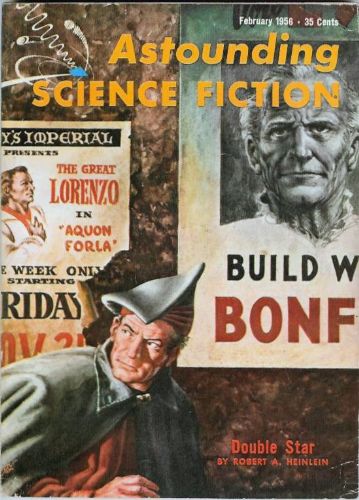
“Clerical Error“, a novelette by Mark Clifton, Astounding February 1956, in the same issue as part 1 of Heinlein’s “Double Star“. I like this story, but it seems very marginally SF. The protagonist is a head psychiatrist, but who does not have a top security clearance. A lot of scientists in the high security section are cracking up The head psychiatrist thinks the lead psychiatrist for the top security staff is too by the numbers and not really interested in helping them. He has a method of “higher gestalt empathized of personality with a patient” which he has developed and which is much more effective in diagnosing and helping patients. However, he cannot get access to the patients, as he lacks the top security clearance. He arranges for his highly efficient secretary to take time off, and then uses an intentional clerical error to be committed to the same room as a patient he thinks he can help. He does. I don’t see this as a great story, but it’s reprinted in “The Best Science-Fiction Stories and Novels: 1956“, T. E. Dikty editor, 1956 Frederick Fell, and “The Great SF Stories # 18 (1956)“, Isaac Asimov & Martin H. Greenberg editors, 1988 DAW Books, so they clearly disagree. Rated 3.6/5, or “Very good”.

“Silent Brother“, a short story by Algis Budrys, Astounding February 1956, in the same issue as “Clerical Error”. I really like this story by Budrys (under his “Paul Janvier” pseudonym). His writing is just really solid. Its about a symbiote/parasite that returns to comes to the Earth when the first interstellar ship returns. Told via the POV of probably a test pilot who was crippled in a test flight of the ship’s prototype, and who has been waiting for the ship’s return. He continues to find things happening in his house that he does not remember and cannot account for, and then his physical condition improves in a way that is not possible for a regular human. It turns out he has a “silent brother”, the symbiote, although the mechanism for his exposure to the symbiote is rather sketchy. Reprints include “SF: The Year’s Greatest Science-Fiction and Fantasy: Second Annual Volume“, Judith Merril editor, 1957 Dell, the Budrys collection “Budrys’ Inferno”, 1963 Berkley Medallion, and “The Great SF Stories # 18 (1956)“, Isaac Asimov & Martin H. Greenberg editors, 1988 DAW Books. Rated 3.9/5, or “Great”.

“The Country of the Kind“, a short story by Damon Knight, F&SF February 1956. Outstanding story, scary, well done, about a man who is one of the remaining non-sane or regulated people. He has been made a non-person, and struggles to get people to see him. This is my favorite Damon Knight story. Reprints include “S-F: The Year’s Greatest Science-Fiction and Fantasy“, Judith Merril editor, 1956 Dell, the Damon Knight collection “In Deep“, 1963 Berkley Medallion, “The Science Fiction Hall of Fame, Volume One“, Robert Silverberg editor, 1970 Doubleday, “The Penguin Science Fiction Omnibus“, Brian W. Aldiss editor, 1973 Penguin Books (see my review), “The Great SF Stories # 18 (1956)“, Isaac Asimov & Martin H. Greenberg editors, 1988 DAW Books, “Modern Classics of Science Fiction“, Gardner Dozois editor, 1992 St. Martin’s Press “Science Fiction: Stories and Contexts“, Heather Masri editor, 2008 Bedford Books of St. Martin’s Press, and “Sense of Wonder: A Century of Science Fiction“, Leigh Ronald Grossman editor, 2011 Wildside Press Rated 4.5/5, or “A classic”.
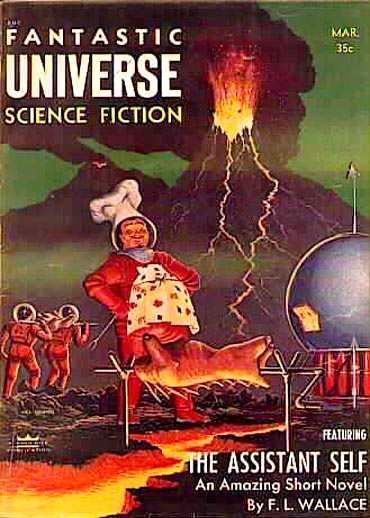
“The Assistant Self“, a novelette by F. L. Wallace, Fantastic Universe March 1956. I see that this was a Hugo Award finalist. At the same time, per ISFDB it’s never been reprinted. I finished it, as I really wanted to see how F.L. Wallace resolved the plot. I found the protagonist’s ability to mimic someone due to his high empathy index to be dramatically far-fetched. The protagonist is hired to figure out who is sabotaging the development of a new star ship. He does, and just barely survives. I am surprised this was a Hugo finalist, but I don’t think we have much information on how the finalists were selected. Of course, this was the same year the “Exploration Team” won the novelette Hugo, which I think is one of the worst choices ever by the Hugo voters. Go figure. I initially gave this a “Very good” rating, but I am revising it down to 3.5/5, or “Good” after consideration. F. L. Wallace’s 1955 story “End as a World” is better than this, and that was only “Very Good”. Rated 3.5/5, or “Good”.

“The Dragon“, a short story by Ray Bradbury, Esquire, August 1955 and then F&SF March 1956. I’m sure I have read this short short fantasy, but it’s not memorable. Two knights on the moors are annihilated by a dragon. Switching point of view, we hear from the two men driving the train that hit them. I find this another Hugo finalist that is a head scratcher for me. Reprints include a number of Bradbury collections including “A Medicine for Melancholy” (1959 Doubleday) and “R is for Rocket” (1962 Doubleday), and only one anthology, “Dragons: The Greatest Stories“, Martin H. Greenberg editor, 1997 MJF Books. Rated 3.5/5, or “Good”.
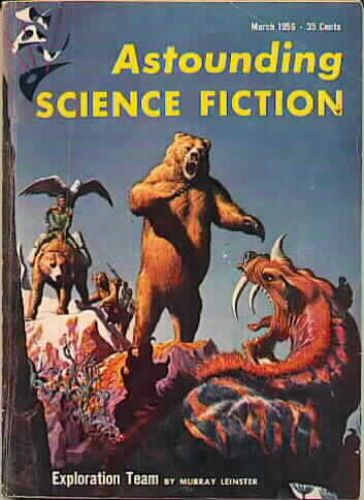
“Exploration Team“, a novelette by Murray Leinster, Astounding March 1956. A rugged individualist is illegally settling a dangerous planet with a team of giant bears and a hawk. A Colonial Survey official lands and would be killed immediately by the inimical wildlife unless the man and his animals help him. They end up rescuing the survivors of a robot supported colony who were surrounded and almost killed by the wildlife. In the end, the Colonial Survey official realizes that robots will not be enough and tells his superiors a lie to save the illegal settler and enable his help for the colonists. I like this story and have fond memories of the illustrations, but I really struggle with this as a Hugo winner or even a Hugo finalist. See my discussion of this. There are quite a few significant reprints, so perhaps I’m an outlier. Reprints include “The Hugo Winners“, Isaac Asimov editor, 1962 Doubleday (probably where i first read it), “Spectrum III“, Kingsley Amis & Robert Conquest editors, 1963 Gollancz, “Explorers of Space“, Robert Silverberg editor, 1975 Thomas Nelson, “The Great SF Stories # 18 (1956)“, Isaac Asimov & Martin H. Greenberg editors, 1988 DAW Books, and “First Contacts: The Essential Murray Leinster“, 1998 NESFA Press. At the same time, it’s not included in “The Best of Murray Leinster” (1976, UK and 1978, US, with different contents), which does tell you something. Rated 3.7/5, or “Very good”.
“A Gun for Dinosaur“, a novelette by L. Sprague de Camp, Galaxy March 1956. Great time travel, dinosaur hunting, bad client story. I don’t know how I missed this one for so long. It’s just as good on reread a few years later after reading it for the first time, especially the Flint afterword in “The World Turned Upside Down” (2005 Baen), see review. Reprinted fairly often, including “The World That Couldn’t Be and 8 Other Novelets from Galaxy“, H. L. Gold editor, 1959 Doubleday, the de Camp collection “A Gun for Dinosaur and Other Imaginative Tales“, 1963 Doubleday/SFBC, “The Best of L. Sprague de Camp“, 1978 Nelson Doubleday/SFBC, “Dawn of Time: Prehistory Through Science Fiction“, Martin H. Greenberg, Joseph Olander, & Robert Silverberg editors, 1979 Elsevier/Nelson Books, “Grand Masters’ Choice“, Andre Norton & Ingrid Zierhut editors, 1989 NESFA Press, “Dinosaurs!“, Jack Dann & Gardner Dozois editors, 1990 Ace Books, “Timescapes: Stories of Time Travel“, Peter Haining editor, 1997 Souvenir Press, “Sense of Wonder: A Century of Science Fiction“, Leigh Ronald Grossman editor, 2011 Wildside Press. “Rated 3.8/5, or “Great”.


“Legwork“, a novelette by Eric Frank Russell, Astounding 1956. I have this issue of Astounding. I assume I read “Legwork” decades ago, but I don’t remember anything from then. Reading this story, I can’t help but contrast “Legwork” to the story I just read before it, “Clerical Error” by Mark Clifton. “Clerical Error” really got bogged down occasionally, and the plot was a stretch, and it was not SF. This story will never be known as a classic, but Eric Frank Russell sure did a lot of things right here. The characters are engaging. The plot goes somewhere that you can follow, in a way that is effective and that keeps you interested. There is actual science fiction here, albeit not an exactly novel plot of a potential alien invasion. Russell set it up and allowed a solution, but the humanoid from outer space with hypnotic-like powers of controlling what those nearby saw was a handful. I definitely enjoyed the legwork, grind-it-out approach to finding and stopping the alien scout by the FBI and local police, and then broader information gathering. This was a worthy Hugo finalist IMHO. Reprinted in the Russell collection “Far Stars” (1961 Dennis Dobson), “5 Unearthly Visions“, Groff Conklin editor, 1965 Fawcett Gold Medal, “Entities: The Selected Novels of Eric Frank Russell“, 2001 NESFA Press, and “Future Crimes“, Mike Ashley editor, 2021 British Library Publishing. Rated 3.8/5, or “Great”.

“The Dead Past“, a novelette by Isaac Asimov, Astounding April 1956. I’m sure I’ve read this before, either in Astounding or in the Asimov collection “Earth is Room Enough” (1957 Doubleday/ SFBC), but I don’t remember anything from those prior reads. This might be my favorite Asimov story, with characters and tautness that surpasses “Nightfall“. A very, very determined, even crazed, historian of Carthage wants to use the chronoscope, the government run time viewer, to clear the reputation of Carthage. After he is turned down, he recruits a newly minted physics professor to help him investigate the chronoscope. We also find out his infant daughter died in a fire, and his wife wants to see her daughter more than anything. They discover the time viewer is possible, but that it is deliberately suppressed by the government. They also discover it only works back perhaps 150 years, and not thousands as represented. At the end, the attempt to suppress the time viewer information, including how one can be built fairly easily, fails. Privacy and secrets are over. As noted by the official tasked with suppression, “Happy goldfish bowl to you, to me, to everyone, and may each of you fry in hell forever”. This had touches of the Henry Kuttner/C. L. Moore novelette “Private Eye” (Astounding January 1949) and the Damon Knight short story “I See You” (November 1976 F&SF), and of course the classic “E for Effort” by T. L. Sherred (Astounding May 1947). This is another story that I was really looking forward to reading or rereading, and I was not disappointed. It’s also worth noting that this was published in the same issue of Astounding that had one of the “Double Star” episodes (part 3), with the second appearance with a “Double Star” cover. That’s one hell of an issue of Astounding. I’m a little surprised this did not get a Hugo nomination. Other reprints include “Five-Odd“, Groff Conklin editor, 1964 Pyramid Books, “Beyond Control“, Robert Silverberg editor, 1972 Thomas Nelson, “The Best of Isaac Asimov“, 1973 Sphere, “The Arbor House Treasury of Great Science Fiction Short Novels“, Martin H. Greenberg & Robert Silverberg editors, 1980 Priam Books/Arbor House, and “The World Treasury of Science Fiction“, David G. Hartwell editor, 1989 Little, Brown/BOMC (see my review), and many, many Asimov collections. Rated 4.3/5, or “Superlative”.
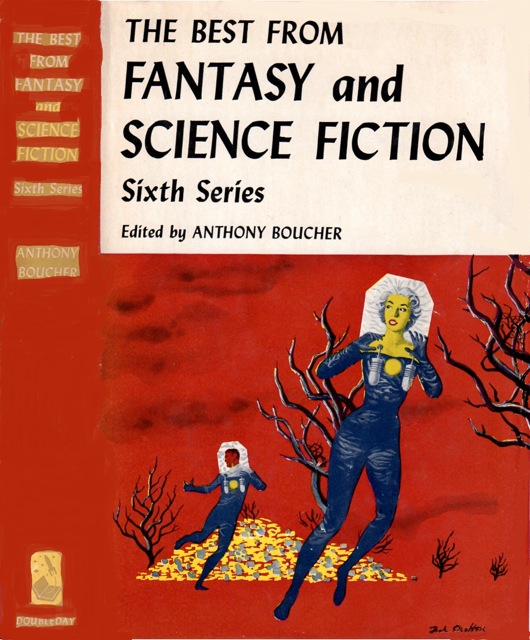
“The Man Who Came Early” by Poul Anderson, F&SF June 1956. A great story of unintentional time travel, and how an engineering student serving in the US Army in Iceland is blasted back to the 11th century AD by lightning. Although he feels that his modern day skills and information will help him, he is ill prepared for both everyday life and for the Icelandic cultural setting of that day. Told as a story to a priest who is hoping to convert pagans. Although the idea is not at all new, the execution is phenomenal. In my opinion, this might be the first great Poul Anderson story, and I would have nominated it for the Hugo award. I have this in “The Best from Fantasy & Science Fiction: Sixth Series“, Anthony Boucher editor, 1957 Doubleday, so I assume I might have read it decades ago, but it’s not remembered. This was a Richard Lupoff “What If? Vol 1” (1980 Pocket Books) selection for preferred Hugo selection from 1956. Rich Horton also liked “The Man Who Came Early” as one of his alternate 1956 Hugo selections. Reprints include “One Hundred Years of Science Fiction“, Damon Knight editor, 1968 Simon & Schuster, the Anderson collection “The Horn of Time“, 1968 Signet/New American Library, “Alpha One“, Robert Silverberg editor, 1970 Ballantine Books, “Combat SF“, Gordon R. Dickson editor, 1975 Doubleday, “The Arbor House Treasury of Science Fiction Masterpieces“, Martin H. Greenberg & Robert Silverberg editors, 1983 Arbor House, “The Great SF Stories # 18 (1956)“, Isaac Asimov & Martin H. Greenberg editors, 1988 DAW Books, “The Best Time Travel Stories of All Time“, Barry N. Malzberg editor, 2003 ibooks, and “Call Me Joe (The Collected Short Works of Poul Anderson #1)“, 2009 NESFA Press. Rated 4.1/5, or “Superlative”.

“Horrer Howce“, a short story by Margaret St. Clair, Galaxy July 1956. I thought this was a great little story that grew on me as I re-read it. I was not sure, but when I finished it I was pretty sure I had read it before. I like the personalities and how the action evolves, and I love the Voom. I lean towards it being SF, with the signaling devices and perhaps other dimensions. This is certainly one of my favorite stories by Margaret St. Clair, but I have not read her exhaustively enough to be sure. Reprints include “The Fourth Galaxy Reader“, H. L. Gold editor, 1959 Doubleday, “The Freak Show“, Peter Haining editor, 1970 Rapp & Whiting, “Galaxy: Thirty Years of Innovative Science Fiction“, Martin H. Greenberg, Joseph D. Olander, & Frederik Pohl editors, 1980 Playboy Press/SFBC, “The Best of Margaret St. Clair“, 1985 Academy Chicago, “The Great SF Stories # 18 (1956)“, Isaac Asimov & Martin H. Greenberg editors, 1988 DAW Books, and “A Compendium of Margaret St. Clair“, Christopher Broschell editor, 2020 Library and Archives Canada. Rated 3.8/5, or “Great”.

“A Work of Art“, a short story by James Blish, Science Fiction Stories July 1956. An outstanding story of Richard Strauss, brought back to life in the future by a mind sculptor. His new opera is premiered; he understands the audience is cheering his return to “life” and the mind sculptor, not the opera. I don’t remember reading this, but I probably did in Blish’s 1959 collection “Galactic Cluster“. Other reprints include “Best SF Six“, Edmund Crispin editor, 1966 Faber and Faber, “The Best of James Blish“, 1979 Del Rey/Ballantine, “The Golden Age of Science Fiction“, Kingsley Amis editor, 1981 Hutchinson, “The Great SF Stories # 18 (1956)“, Isaac Asimov & Martin H. Greenberg editors, 1988 DAW Books, “The Science Fiction Century“, David G. Hartwell editor, 1997 Tor/BOMC, and “Masterpieces: The Best Science Fiction of the Century“, Orson Scott Card editor, 2001 Ace Books. Rated 3.9.5, or “Great”.

“Compounded Interest“, a short story by Mack Reynolds, F&SF August 1956. A fun story of a man who is obviously a time traveler, going back in time to invest gold coins in 1300 AD for the long haul. It’s finally revealed in 1960 that he is a physicist who had been hired to look into time travel by the managers of the invested money. He needs the money to pay for the exorbitant power needs for a time machine, so that he can invest the money, etc. Yes, a circular loop of time. The story occurs within the regular (mostly 100 year intervals) appearances of “Mr. Smith” and those managing his money. Reprints include “SF: The Year’s Greatest Science-Fiction and Fantasy: Second Annual Volume“, Judith Merril editor, 1957 Dell, “The Best Science-Fiction Stories and Novels: 1956“, T. E. Dikty editor, 1956 Frederick Fell/SFBC, “The Best of Mack Reynolds“, 1976 Pocket Books, and the limited edition Boskone 20 commemorative for him as a Guest of Honor, “Compounded Interests“, 1983 NESFA Press. I like this story and I like Mack Reynolds, but I do question it’s inclusion in both the Merril and the Dikty “Year’s Best” anothologies. Rated 3.7/5, or “Very good”.
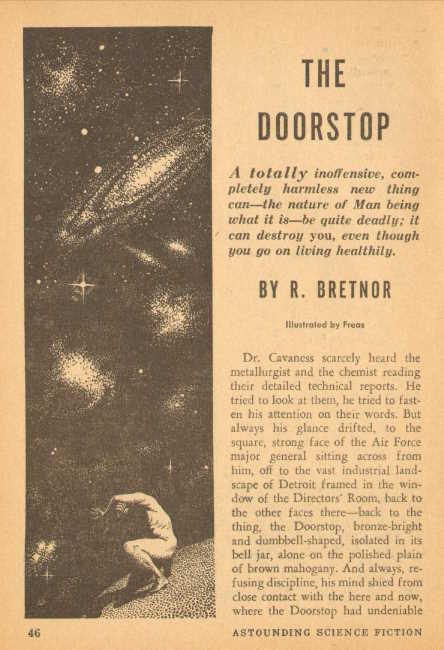
“The Doorstop“, a short story by Reginald Bretnor, Astounding November 1956. I know Reginald Bretnor for his humor, such as in his Ferdinand Feghoot stories. This was his first serious SF story as far as I know. I assume I’ve read it before as I own that issue of Astounding, but not remembered. An aging, perhaps rather parochial small town doctor finds his wife using an “antique ” as a doorstop. There is something about the doorstop, and he contacts people to examine it. At the end of the story we find out the item is from another solar system, and that it can’t have been on Earth longer than a few weeks. This doctor appears to be having a very hard time with the idea this is from outside. Fade to the future. Reprints include in “SF: The Year’s Greatest Science-Fiction and Fantasy: Second Annual Volume“, Judith Merril editor, 1957 Dell, and “The Great SF Stories # 18 (1956)“, Isaac Asimov & Martin H. Greenberg editors, 1988 DAW Books. Even though I like this story, I would not have picked it as one of the best of 1956. Rated 3.7/5, or “Very good”.

“The Last Question“, a short story by Isaac Asimov, Science Fiction Quarterly November 1956. A pair of drunken technicians ask Multivac (a worldwide computer) what the human race should do about running out of energy when entropy reigns and all of the suns are dead. “INSUFFICIENT DATA” continues to be the answer until after the end of the universe, when only the Universal AC remains. “LET THERE BE LIGHT” is the answer. A pretty good story, and Asimov is quoted as this being his favorite short story of his own. One source suggests that the Frederic Brown short story “Answer” (1954) is better, and I agree. In that one, a worldwide computer network is asked “Is there a God?” The answer is, “There is one now”. There are many reprints of “The Last Question”, including the Asimov collection “Nine Tomorrows“, 1959 Doubleday, “The Great SF Stories # 18 (1956)“, Isaac Asimov & Martin H. Greenberg editors, 1988 DAW Books, “The Ascent of Wonder: The Evolution of Hard SF“, Kathryn Cramer & David G. Hartwell editors, 1994 Tor, “The World Turned Upside Down”, Jim Baen, David Drake, & Eric Flint editors, 2005 Baen, “The Big Book of Science Fiction: The Ultimate Collection“, Ann & Jeff VanderMeer editors, 2016 Vintage Crime/Black Lizard/Vintage Books. Rated 3.7/5, or “Very good”.
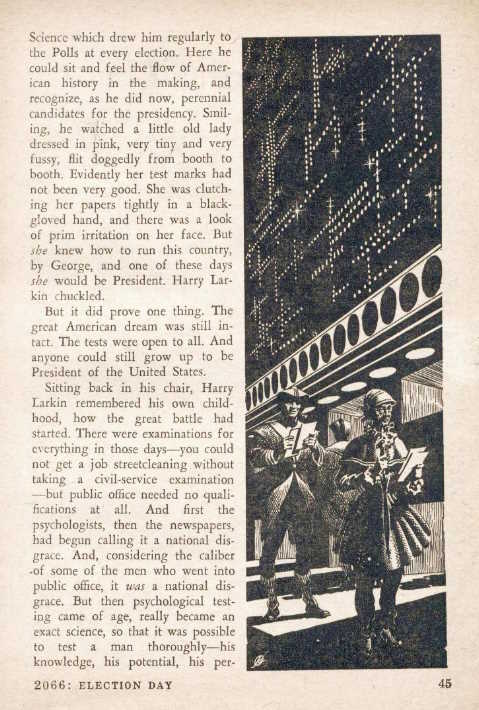
“2066: Election Day“, a short story by Michael Shaara, Astounding December 1956. A very good story about the election of a president, when the selection is by computer and the job is too much for anyone. I think I read this one in Astounding many years ago. Reprints include “Best Science Fiction Stories and Novels: 9th Series“, T. E. Dikty editor, 1958 Frederick Fell/SFBC, “Political Science Fiction: An Introductory Reader“, Martin H. Greenberg & Patricia S. Warrick editors, 1974 Prentice-Hall, the Shaara collection “Soldier Boy“, 1982 Timescape/ Pocket Books, and “The Science Fiction Century”, David G. Hartwell editor, 1997 Tor/BOMC, Rated 3.7/5, or “Very good”.
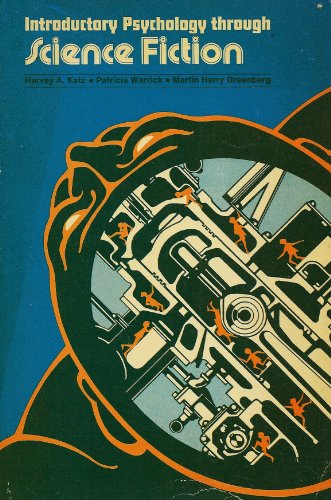
“And Now the News …“, a novelette by Theodore Sturgeon, F&SF December 1956. I have no idea if I’ve read this before or not. I have no firm idea as to whether it is SF or not, but probably not. It’s one hell of a story of a very particular mental illness, its unfortunate cure, and the man involved. And the news and John Donne. It did win the 2005 Seiun Award for Best Translated Short Story. Reprints include The Best from Fantasy and Science Fiction, Sixth Series“, Anthony Boucher editor, 1957 Doubleday, “Masters’ Choice“, Laurence M. Janifer editor, 1966 Simon & Schuster, “Introductory Psychology Through Science Fiction“, Martin H. Greenberg, Harvey A. Katz, & Patricia S. Warrick editors, 1974 Rand McNally & Company, the Sturgeon collection “The Golden Helix“, 1979 Nelson Doubleday/SFBC, “The Magazine of Fantasy & Science Fiction: A 30 Year Retrospective“, Edward L. Ferman editor, 1980 Doubleday, “The Great SF Stories # 18 (1956)“, Isaac Asimov & Martin H. Greenberg editors, 1988 DAW Books, and “Strange Dreams“, Stephen R. Donaldson editor, 1993 Bantam Spectra. Rated 3.9/5, or “Great”.
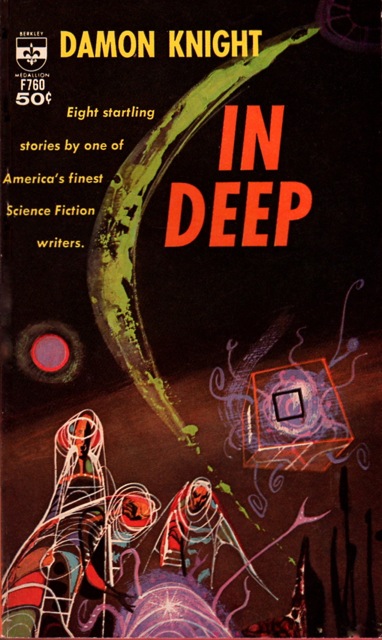
“Stranger Station“, a novelette by Damon Knight, F&SF December 1956. An interesting story of a spaceman recruited and selected to be the sole human who meets with the an alien. This happens at a remote space station every 10-20 years. It’s not exactly a first contact story, but it is all about how the human and the alien get along, and what they each get out of it. It’s very difficult for both. I gave this a “Good” rating, not even getting to “Very good” for me. It appeared in “SF: The Year’s Greatest Science-Fiction and Fantasy: Second Annual Volume“, Judith Merril editor, 1957 Dell, the Damon Knight collection “In Deep“, 1963 Berkley Medallion, “Spectrum IV“, Kingsley Amis & Robert Conquest editors, 1965 Gollancz, “Earthmen and Strangers“, Robert Silverberg editor, 1966 Duell, Sloan and Pearce, “The Arbor House Treasury of Modern Science Fiction“, Martin H. Greenberg & Robert Silverberg editors, 1980 Arbor House, “The Great SF Stories # 18 (1956)“, Isaac Asimov & Martin H. Greenberg editors, 1988 DAW Books, The World Treasury of Science Fiction“, David G. Hartwell editor, 1989 Little, Brown/BOMC, and “The Big Book of Science Fiction: The Ultimate Collection“, Ann & Jeff VanderMeer editors, 2016 Vintage Crime/Black Lizard/Vintage Books. With all of these major reprints, I may be an outlier on this story. Rated 3.5/5, or “Good”.

“The Anything Box“, a short story by Zenna Henderson, F&SF October 1956. A little girl has an anything box, and loses it to devastating effect. Her teacher is tempted to keep it when she finds it. This feels like a story of The People, although it’s not recognized as such. For me, this is SF, not fantasy. Reprints include “SF: The Year’s Greatest Science-Fiction and Fantasy: Second Annual Volume“, Judith Merril editor, 1957 Dell, the Henderson collection “The Anything Box“, 1965 Doubleday, “The Golden Road”, Damon Knight editor, 1974 Simon & Schuster, “Women of Wonder, the Classic Years: Science Fiction by Women from the 1940s to the 1970s“, Pamela Sargent editor, 1995 Harvest/Harcourt, “The Penguin Book of Modern Fantasy by Women“, Richard Glyn Jones & A. Susan Williams editors, 1995 Viking UK, “The Prentice Hall Anthology of Science Fiction and Fantasy“, Garyn G. Roberts editor, 2000 Prentice Hall (see my review), “The Very Best of Fantasy & Science Fiction, Volume 2“, Gordon Van Gelder editor, 2014 Tachyon Publications, “Believing: The Other Stories of Zenna Henderson“, 2020 NESFA Press, and “The Big Book of Modern Fantasy“, Ann & Jeff VanderMeer editors, 2020 Vintage Books . Rated 4.5/5, or “A classic”.
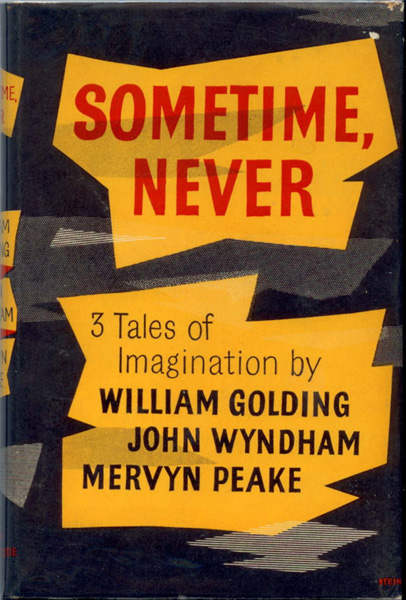
“Consider Her Ways“, a novella by John Wyndham, from “Sometime, Never“, no editor listed, 1956 Eyre & Spottiswoode. Wow. This was a real sledgehammer of a story in terms of impact for me. I don’t think I have read any other short fiction by Wyndham. A woman wakes up in a very different body, in a very different society, with only women present albeit in 4 very different body types. She finds out she is in the future, and that the men have all died due to an escaped virus. The women survived and a succeeding in a manner very similar to that of Joanna Russ in “When It changed“, and similarly have no interest in men coming back. She finds that she has been projected into the future by an experimental drug. She is faced with having her memory erased to enable her to fit in; she convinces the Doctorate to allow her to try the same drug to return to the past. Apparently she succeeds, and kills the researcher responsible for the virus that kills the men. She may be found “not guilty by reason of insanity”, and we find that the researcher’s son will continue the same research, perhaps with the same result. I don’t know if Russ had read this story, but it was reprinted a number of time in the US, so that is very possible. This is my favorite short fiction by John Wyndham. Reprints include the Wyndham collection “Consider Her Ways and Others“, 1961 Michael Joseph, “Best SF Five“, Edmund Crispin editor, 1963 Faber and Faber, “A Science Fiction Argosy“, Damon Knight editor, 1972 Simon & Schuster, “The Time Travelers: A Science Fiction Quartet“, Martin H. Greenberg & Robert Silverberg editors, 1985 Donald I. Fine, and “The Science Fiction Century”, David G. Hartwell editor, 1997 Tor/BOMC. Rated 4.5/5, or “A classic”.
Dave’s Bonus 1956 Stories
Already Read
“Time in Advance“, a novelette by William Tenn, Galaxy August 1956. I love William Tenn, and I know I’ve read this before, as I own the issue of Galaxy this appeared in. “Blotto Otto” is not a nickname you forget. This story features a pre-criminal, coming back from a discounted sentence for murder. In this future, a very different approach to penal science; instead of being sentenced after a crime, people who want to commit a crime can serve a discounted sentence on very dangerous prison planets. The protagonist is planning to kill the man who stole his invention and got rich. However, he finds out that everyone he valued had screwed him over – his ex-wife, his brother, his business partner, in addition to the man who stole his invention. All of these people think he did the pre-sentence to kill them. He ends up deciding to forgive the man and just live. This is a great story. Reprints include the Tenn collection “Time in Advance“, 1958 Bantam Books, “Introducing SF: A Science Fiction Anthology“, Brian W. Aldiss editor, 1964 Faber and Faber, “The 13 Crimes of Science Fiction“, Isaac Asimov, Martin H. Greenberg, & Charles G. Waugh, 1979 Doubleday, “The Science Fiction Century“, David G. Hartwell editor, 1997 Tor/BOMC, and “Immodest Proposals: The Complete Science Fiction of William Tenn, Volume 1“, 2001 NESFA Press. Rated 3.8/5, or “Great”.
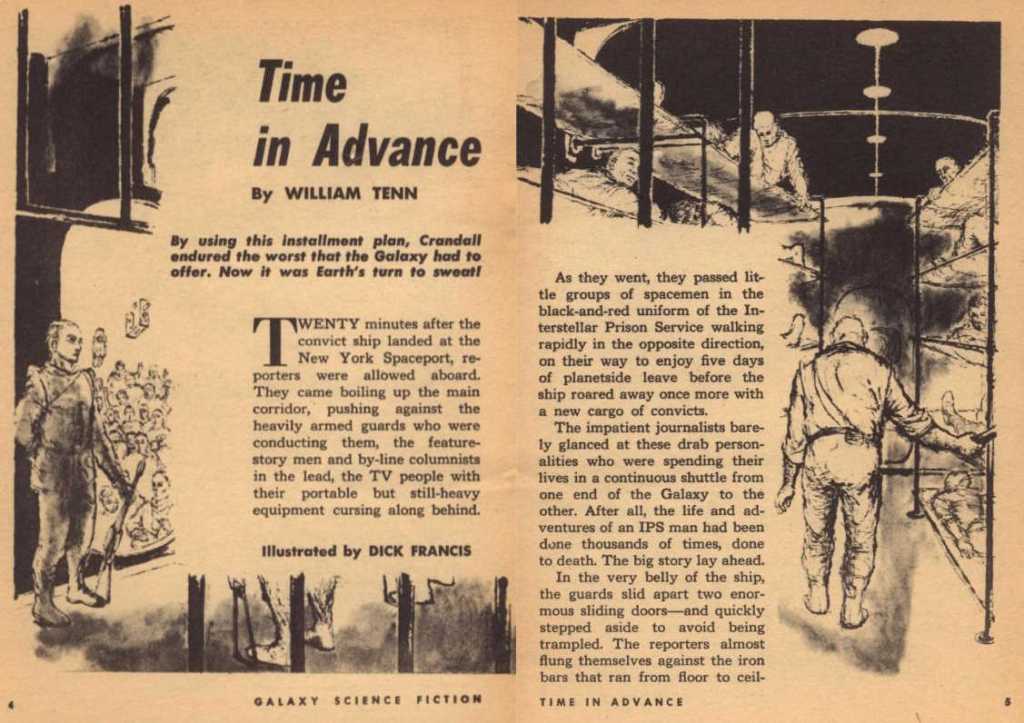

“The Failed Men“, a short story by Brian W. Aldiss, Science Fantasy V6 #18 May 1956. A great story of time travel, told by a man sent to help the Failed Men, far in the future as part of the Intertemporal Red Cross. The Failed Men have buried themselves as a philosophical action, leading to humans dying out. The attempt to revive the human race fails because no one can understand the reasons the Failed Men bury themselves. Although not nominated for any awards or reprinted in any “Year’s Best” anthologies, I think this might be the first great Aldiss story. Reprints include the Aldiss collection “Space, Time and Nathaniel“, 1957 Faber and Faber, many other Aldiss collections including “Man in His Time: The Best Science Fiction Stories of Brian W. Aldiss“, 1989 Atheneum/ Macmillan, and “Earth Is But a Star: Excursions Through Science Fiction to the Far Future“, Damien Broderick editor, 2001 UWA Press. Rated 4/5, or “Great”.

“T“, a short story by Brian W. Aldiss, Nebula Science Fiction Number 18 November 1956. This is a very interesting story with a definitive voice for a first story written by Aldiss. An ancient alien race is menaced by warlike Man. They send custom sentient beings in a fleet of 10 ships across time and space to eliminate the Earth and Man before Man emerges. They succeed in eliminating the planet, but fail due to a reality issue – to wit, they eliminate the wrong planet from the Solar system. The only issue I have with this story is that it’s damned hard to search for it online due to the name. Reprints include the Aldiss collection “Space, Time and Nathaniel“, 1957 Faber and Faber, “First Flight“, Damon Knight editor, 1963 Lancer Books, “First Voyages“, Martin H. Greenberg, Damon Knight, & Joseph D. Olander editors, 1981 Avon, and “The Complete Short Stories: The 1950s“, 2013 The Friday Project. Rated 3.9/5, or “Great”.

“Mr. Sakrison’s Halt“, a short story by Mildred Clingerman, F&SF January 1956. Another great story by Clingerman, told by a preteen who is friends with an aging and rather traumatized relative, Miss Mattie. Set in the South, decades ago, Miss Mattie’s Yankee intended got off the “Katy local” at a mystery station (“halt”) and disappeared from our world. We find out that this mystery station was a place where black and white could be friends in the South. Miss Mattie had hesitated, and missed being able to be with her intended. Finally, the Katy local stops there again, and Miss Mattie is reunited with her man. A fantasy, but a good one. Reprints include Clingerman collections “A Cupful of Space“, 1961 Ballantine Books and “The Clingerman Files“, 2017 Size 5 1/2 B Publishing, “The Future Is Female!: 25 Classic Science Fiction Stories by Women, From Pulp Pioneers to Ursula K. Le Guin“, Lisa Yaszek editor, 2018 The Library of America, and one French reprint. Rated 3.8/5, or “Great”.
“To Serve the Master “, a short story by Philip K. Dick, Imagination February 1956. A very good story of a common man, a letter carrier, who finds an abandoned robot. The robot, actually an android, tells him that the war, which destroyed much of civilization and caused men to live in isolated underground warrens, was due to conflict between warring parties of humans. The man wants a better life, and hopes the robot can help. Finally, he finds out from one of his superiors that the war was one of extermination, of men versus robots. Things go badly for him. Reprints include more than a few Dick collections including “Robots, Androids, and Mechanical Oddities: The Science Fiction of Philip K. Dick“, 1984 Southern Illinois, and “The Collected Stories of Philip K. Dick: Volume 2“, 2023 Gollancz. Rated 3.7/5, or “Very good”.


“The Windows of Heaven“, a short story by John Brunner, New Worlds Science Fiction #47 May 1956. A great story, first published in New Worlds Science Fiction as “Two by Two”, May 1956, in slightly different form. An astronaut, the first to reach the Moon, is mostly occupied with scientific instruments and experiments. The sun is acting oddly, and finally explodes, perhaps in a nova. He survives, with the Moon between him and the sun. He loses contact with Earth. Time goes on, the sun returns to “normal”, and he returns to the Earth, hoping there may be survivors. There are none, and the environment is pretty sterile after the high heat. He discovers that he had some Earth bacteria with him when he flew to the moon, and he has brought that back. He will die, but perhaps the bacteria will live. “Two by Two” has never been reprinted. “The Windows of Heaven” version has a number of reprints, including the Brunner collection “No Future in It“, 1962 Gollancz, “Science Fiction“, S. H. Burton editor, 1967 Longman, “The Penguin Science Fiction Omnibus“, Brian W. Aldiss editor, 1973 Penguin Books (see my review), and “Go Forth and Multiply“, Gordon Van Gelder editor, 2017 Surinam Turtle Press. Rated 4/5, or “Great”.
Already read in “SF: The Year’s Greatest Science-Fiction and Fantasy: Second Annual Volume“, Judith Merril editor, 1957 Dell.

“Prima Belladonna“, a short story by J. G. Ballard, Science Fantasy V7 #20 December 1956. Judith. Merril notes this as the first published SF story by Ballard. It appears that he had two stories published in December 1956, so this could be the first. A great story that kept me interested and yet off balance. A man in a very different Earth runs a music shop with plants that produce music. He meets and has an affair with a half-alien woman who sings as an entertainer, and sings with the plants in his shop. She cheats at i-Go, and then disappears. This is one hell of a first story. Other reprints include “SF: The Year’s Greatest Science-Fiction and Fantasy: Second Annual Volume“, Judith Merril editor, 1957 Dell, the Ballard collection “Billenium“, 1962 Berkley Medallion, “First Voyages“, Martin H. Greenberg, Damon Knight, & Joseph D. Olander editors, 1981 Avon, “The Ascent of Wonder: The Evolution of Hard SF“, Kathryn Cramer & David G. Hartwell editors, 1994 Tor, and many other Ballard collections. Rated Rated 3.9/5, or “Great”.

“The Man Who Liked Lions“, a short story by John Bernard Daley, Infinity Science Fiction October 1956. A good story of a non-human visitor from the past. He and his species have mental powers that they can use to time travel. The protagonist is a renegade Lord, and opponent of the Science Council, and he is pursued through time. He despises humans, who he views as apes. He encounters his pursuers at the zoo, where he and the others of his species present all die via indirect effects of the mental powers. The Lord with the pursuers dies because the protagonist uses his power over lions, and the renegade Lord dies because the other Lord uses his powers over large birds. I love the characterization and showing of the human behavior, which is pretty unappealing. This was the 2nd of 3 stories published by Daley, per ISFDB. Pretty impressive for an author who did not publish much and who I had never heard of. Other than the reprint in Merril, there are two in German. Rated 3.7/5, or “Very good”.
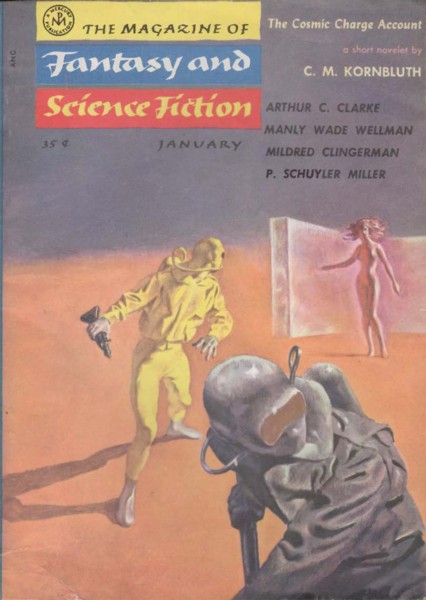
“The Cosmic Charge Account“, a novelette by C. M. Kornbluth, F&SF January 1956. I assume I read this in the Kornbluth collection “The Marching Morons and Other Famous Science Fiction Stories” (1959 Ballantine Books), but I don’t remember it at all. A fun, satirical romp of a story where an academic author writes a philosophical self-help book. His biggest fan takes it all to heart, and exerts strong powers that are insipid, nice, and covering more ground every day. Most of the residents of the area become zombies. The author and a publishing executive penetrate the “plague” zone in an attempt to slow or stop the effect. In order to fight the effect, they train to anger and panic the other. They succeed, and the author then shows he has the powers as well. This is not major Kornbluth and another one I would not have include in a “Year’s Best” anthology. Other reprints include “The Best from Fantasy and Science Fiction, Sixth Series“, Anthony Boucher editor, 1957 Doubleday and many Kornbluth collections including “His Share of Glory: The Complete Short Science Fiction of C. M. Kornbluth“, 1997 NESFA Press. Rated 3.6/5, or “Very good”.

“The Far Look“, a novelette by Theodore L. Thomas, Astounding August 1956. I read this in a paper copy of the August 1956 Astounding, a gift from a friend. It’s an interesting story of the effect of living on the Moon for a month on the astronauts. Men come back from rotations on the Moon with some of them different, including the far look. The story follows one pair through a trip to the Moon and back. Nothing really on the specific characters of the two astronauts, unfortunately. There is a real, detailed focus on how the stress and 24/7 dangers of living in such an environment change behavior and cognition of many of the astronauts. Pretty good story, but not great. I’m not sure I would have included this story in the Merril anthology. Other reprints include “Spectrum V“, Kingsley Amis & Robert Conquest editors, 1966Gollancz, and “Science Fiction Novellas“, Harry Harrison & Willis E. McNelly editors, 1975 Charles Scribner’s Sons, with no English reprints since then. Rated 3.6/5, or “Very good”.

“When Grandfather Flew to the Moon“, a short story by E. L. Malpass, The London Observer, January 1955. Amusing but very dated future story of grandmother, who finds grandfather stubborn and who will never get her or let her get a rocket to go to the moon. When a rocket to the moon crash-lands nearby and needs repairs, grandfather ends up going to the moon instead. Grandma is annoyed, thinks Grandpa is dead, and leaves town with a man with a time machine. Grandpa returns and, using another time machine, tracks her down and strands her in an undesirable time. Grandpa here sounds like a real asshole. I can see how Merril might have liked the humor for the time, but I would not have included this story. Other reprints include “A.D. 2500: The Observer Prize Stories“, 1954 William Heinemann, and “Tales of Science Fiction“, Brian N. Ball editor, 1964 Hamish Hamilton, with none after 1968. Rated 3.3/5, or “Good”.

“Each an Explorer“, a short story by Isaac Asimov, Future Science Fiction #30 August 1956. Psionic plants manipulate explorers to take their spores to Earth. There is speculation that the plants modified the races involved after they were spread, to reduce risk to the plants. Ok story, but I suspect it would not be in this volume with most other authors. Reprints include “Explorers of Space“, Robert Silverberg editor, 1975 Thomas Nelson, the Asimov collection “Buy Jupiter and Other Stories“, 1975 Doubleday, and “Wide-Angle Lens: Stories of Time and Space“, Phyllis R. Fenner editor, 1980 William Morrow. Rated 3/5, or “Okay”.

“Put Them All Together, They Spell Monster“, a short story by Ray Russell, Playboy October 1956. An amusing little story, told as if in a dream, of a Vaseline monster from outer space and an effort to stop the danger. The woman doctor elopes with the monster. I love the title; it’s probably my favorite thing about the story. Although I like this story, it’s another choice by Merril that I am underwhelmed by. Other reprints include Russell’s “The Little Lexicon of Love”, 1966 Sherbourne Press, and “The Fully Automated Love Life of Henry Keanridge“, Editors of Playboy, 1971 Playboy Press, with no reprints after 1971. Rated 3.4/5, or “Good”.

“Digging the Weans“, a short story by Robert Nathan, Harper’s Magazine November 1956. Entertaining but minor story or recapitulation of the state of archeological research and conclusions from a future human civilization based in Kenya about the land of “We” or ” Us”. It’s a satire that runs on too long for me. This is another story that I wonder about Merril’s judgement on it’s inclusion. Other reprints include “A Stress Analysis of a Strapless Evening Gown“, Robert A. Baker editor, 1963 Prentice-Hall (probably where I read this story first a long time ago), and “Neutron Stars“, Gregory Fitz Gerald editor, 1977 Fawcett Gold Medal for it’s last reprint. Rated 3.2/5, or “Good”.
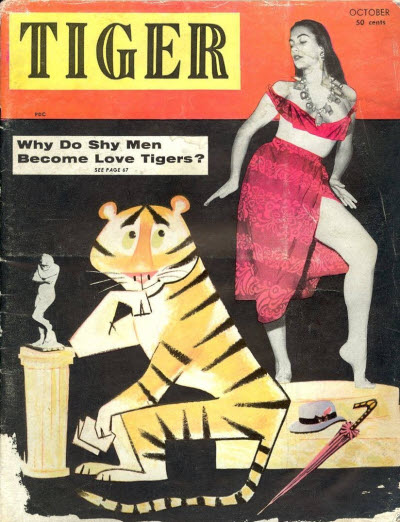
“Take a Deep Breath“, a short story by Roger Thorne (a pseudonym for Ray Russell!), Tiger October 1956. A story of advertising and hypnosis. Well done but ordinary. Other reprints include “A Stress Analysis of a Strapless Evening Gown“, Robert A. Baker editor, 1963 Prentice-Hall and “Neutron Stars“, Gregory Fitz Gerald editor, 1977 Fawcett Gold Medal for it’s last reprint. Another story that I wonder why Merril included it. Rated 3.5/5, or “Good”.

“Grandma’s Lie Soap“, a short story by Robert Abernathy, Fantastic Universe February 1956. A great story of a recipe that leaves people unable to lie, mostly delivered via toothpaste, mouthwash, etc. It changes society and the world dramatically. An unexpected result is that young people, not used to lying, are very trusting and can be fooled by lies. The protagonist, a chemist who got the formula from his Grandma for her lie soap, is worried about aliens who may be more like people used to be. Other than Merril, the only reprint for this story is in “Science Fiction Gems, Volume Seven“, Gregory Luce editor, 2014 Armchair Fiction. Rated 3.8/5, or “Great”.

“The Other Man“, a novella by Theodore Sturgeon, Galaxy September 1956. An interesting story of a doctor treating a man with unknowing multiple personalities. Also, the patient took the girl he loved from him, creating conflicts. Not my favorite, and it’s mostly mental action. While I like this story, there were much better Sturgeon stories from 1956 that could have been included, such as “And Now the News …“, a novelette, F&SF December 1956, “The Claustrophile” (this would have been my choice), a novelette, Galaxy August 1956, or The Skills of Xanadu“, a novelette, Galaxy, July 1956. Other reprints include “The Worlds of Theodore Sturgeon“, 1972 Ace Books. Rated 3.7/5, or “Very good”.
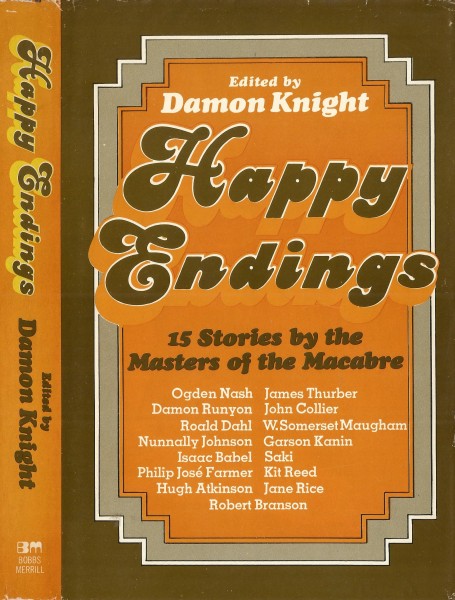
“The Damnedest Thing“, a short story by Garson Kanin, Esquire February 1956. A fun story about an undertaker who comes home and drinks more than usual. He finally tells his wife that one of his dead “clients” woke up, spoke to him, gave him directions to have a really cheap funeral, and put it in writing and then went back to dead. He and his wife think about it and they burn the written directions. A very good story, by an author that I’ve never heard of with only two stories in ISFDB. This is finally a Merril selected story with a non-genre source that succeeds. Reprints include F&SF July 1956 and “Happy Endings“, Damon Knight editor, 1974 Bobbs-Merrill Company. Rated 3.7/5, or “Very good”.
Rich Horton Recommendations for 1956

“Bodyguard“, a novella by “Christopher Grimm” (H. L. Gold), Galaxy February 1956. Read decades ago in my copy of “Bodyguard and Four Other Short Novels from Galaxy“, H. L. Gold editor, 1960 Doubleday. It seems a bit familiar, a story of a man who loses his body in a zarquil game of body swapping. He spends the story getting it back. This is not a great story, but it’s entertaining. There are no other significant reprints. Also, although it was written with a pseudonym, I am a bit underwhelmed by H. L. Gold choosing one of his own stories for the “Bodyguard and…” anthology. Rated 3.6/5, or “Very good”.
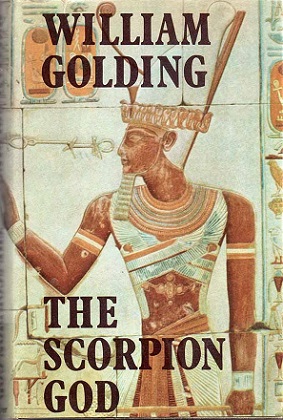
“Envoy Extraordinary“, a novella by William Golding, from “Sometime, Never“, no editor listed, 1956 Eyre & Spottiswoode. A great alternate history story of a barbarian natural philosopher who brings two inventions to one of the Caesars. Things go badly with several of them, as Caesar and the Roman Empire are not ready for steam power, explosives, or the printing press. Caesar loved the pressure cooker, however, and sends the barbarian genius to China as an ambassador, suggesting he take his ideas for explosives and the printing press with him. This is one of a modest number of short fiction works by Golding, author of “Lord of the Flies“. In the blurb for the 1956 anthology “Sometime, Never”, the contents of the three novellas are called “tales of imagination”. Golding certainly had a substantial interest in history and historical fiction. Along with a number of printings of “Sometime, Never”, this was reprinted in the Golding collection “The Scorpion God: Three Short Novels“, 1971 Faber and Faber, and in one German publication. My thanks to Rich Horton for reminding me of this one. Rated 3.8/5, or “Great”.
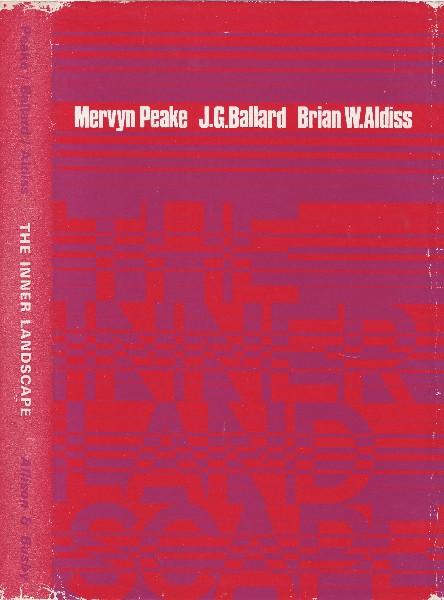
“Boy in Darkness“, a novella by Mervyn Peake, also from “Sometime, Never“, no editor listed, 1956 Eyre & Spottiswoode. I was aware of this story, and I am pleased that reading 1956 SF gave me a reason to read it. The Boy (Titus, although not named in this original version of the story) has a day of ceremonies marking his 14th birthday. His reaction at the straightjacket existence includes a need for exploration and insurrection. He escapes the Castle unmarked, leading to a horrific experience that reminds me in some ways of a gothic recreation of the 1896 H. G. Wells novel “The Island of Dr. Moreau” and the beast men. Just barely, the Boy escapes the horrible Lamb and the Lamb’s surviving victims the Goat and the Hyena. He returns to the Castle with almost no memory of the adventure. This is certainly a more Gothic tale than “Titus Groan“, and it feels more fantastic and horrific. I don’t need to read it again; it lacked the humor of “Titus Groan”. I made a strong case for arguing that “Titus Groan” was SF; I could not make that here. Reprints include “The Inner Landscape“, no editor listed, 1969 Allison & Busby, “Peake’s Progress: Selected Writings and Drawings of Mervyn Peake“, Maeve Gilmore editor, 1978 Allen Lane, and the Peake collection “Boy In Darkness and Other Stories“, 2011 Peter Owen. Rated 3.6/5, or “Very Good”.
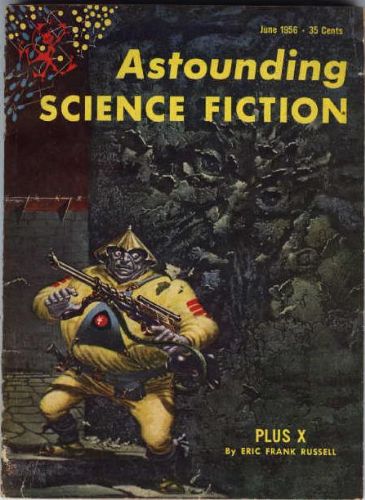
“Plus X“, a novella by Eric Frank Russell, Astounding June 1956. I own “Major Ingredients: The Selected Short Stories of Eric Frank Russell“, 2003 NESFA, and I assume I read it there most recently. “Plus X” is entertaining but it has not aged well, with a space scout penetrating deep into an enemy segment of the galaxy filled with allied aliens. He crash-lands on a planet where they don’t know Earth people. These aliens are both dumb and gullible, and he convinces them that he has a invisible, dangerous symbiote called a Eustace. Eventually the aliens trade him and his Eustace back to Earth. Perhaps not overtly, but I do wonder if this story features racist subtexts. I was glad to reread this, but I am somewhat disappointed. Reprints include “4 for the Future“, Groff Conklin editor, 1959 Pyramid Books, and “Analog: Readers’ Choice“, Stanley Schmidt editor, 1982 Davis Publications. Rated 3.6/5, or “Very good”.

“The Ties of Earth“, a novella by James H. Schmitz, Galaxy November 1955 & January 1956. A disappointing tale of a battle between a New Mind and Old Mind conspiracy, with Commager the New Mind coming into possession of all his abilities and defeating the Old. Some aspects of this felt like Schmitz was channeling A. E. van Vogt. “The Ties of Earth” was almost a “Did not finish” for me. I assume I might have read this before in the 2002 Schmitz collection “Eternal Frontier”, but it’s poor enough that I think I would remember. I’m a big Schmitz fan; I was hoping to find an undiscovered gem from Schmitz here. That sure did not happen. The Schmitz collection “Eternal Frontier“, Eric Flint & Guy Gordon editors, 2002 Baen, is the only reprint, and I can see why. Rated 3.2/5, or “Good”.
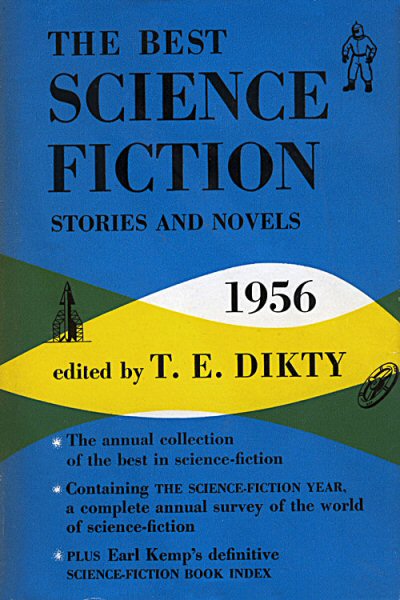
“The Shores of Night“, a novella by Thomas N. Scortia, originally published in different form as “Sea Change” in Astounding June 1956 and then in revised form in “The Best Science-Fiction Stories and Novels: 1956“, T. E. Dikty editor, 1956 Frederick Fell/SFBC. I am sure I read the original version of “Sea Change”, in Astounding Science Fiction June, 1956, but I remember nothing and I’m sure I have never read the expanded novelette version before. A man has a burning passion for interstellar travel, sacrificing his own family and others. He dies, but is reborn as part of the hybrid computer/biological Director. Interstellar travel is finally accomplished by him and others like him who are no longer biological. Reprinted in “The Best of Thomas N. Scortia“, 1981 Doubleday. Rated 3.7/5, or “Very good”.
“Non-Stop“, a novelette by Brian W. Aldiss, Science Fantasy V 6 #17 February 1956. I think I read this decades ago as part of the 1958 Aldiss novel “Starship“, but not remembered. “Non-Stop” is set in a generation ship with most passengers unaware they are on a ship. At the end, we find out they made it to their destination at another star, offloading half the crew. On the way back to Earth, the hydroponics mutated and most humans died. The controls were wrecked. The remaining crew mutated to insanity and a 4X faster lifecycle with a much shorter lifespan. It turns out they have returned to Earth, but they will not be allowed to land. Reprinted in this form only in the Aldiss collection “The Complete Short Stories: The 1950s“, 2013 The Friday Project. A rather different story forms part of the Aldiss novel “Non-Stop“, 1958 Faber and Faber, also published in the US as “Starship”, 1959 Criterion Books. Rated 3.6/5, or “Very good”.


A Time to Survive” (aka “Seeding Program”), a Pantropy novelette by James Blish, F&SF February 1956. The story of the origin of the Adapted Men in the Solar System before humans modified by pantropy spread to the stars. Written later than the classic “Surface Tension” in the same series, but not as good. Sweeney is an Adapted Man who has been created to capture the escaped Adapted Men on Ganymede. The “evil” Earth Port people have decided not to colonize the stars using them, even though it would work and be much more cost effective. Sweeney has been fed a story and sent to recapture them. He finds out the truth and helps the Adapted Men escape to the stars. I guess Blish felt he needed an origin story, but I almost wish he had not. Reprinted in the Blish collection “The Seedling Stars“, 1957 Gnome Press, mostly in English with a few foreign language versions. Rated 3.7/5, or “Very good”.
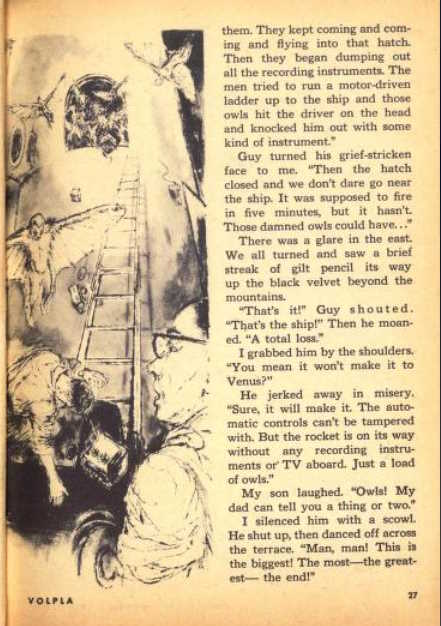
“Volpla“, a novelette by Wyman Guin, Galaxy May 1956. This started a bit slow, but it ended up with a satisfying and surprising, to me, ending. A scientist wants to play the biggest joke on people, and he uses an “accelerator” to breed an intelligent species of small bipeds who can soar. He plans to release them and play a joke on people, but the joke is on him. They learn to read courtesy of one of his kids, and hijack a rocket to Venus. I loved it. Reprints include “The Third Galaxy Reader“, H. L. Gold editor, 1958 Doubleday/SFBC, “13 Great Stories of Science Fiction“, and the Wyman Guin collection “Beyond Bedlam“, 1973 Sphere. Rated 3.8/5, or “Great”.
“The Man Who Ate the World“, a novelette by Frederik Pohl, Galaxy November 1956. Thematically, this feels related to and perhaps in the future of “The Space Merchants”, 1953 Pohl/Kornbluth. When a man was growing up, poor people had to consume insatiably to keep up with the over cranked production of goods. A traumatic event locks that into his psyche. Since then, the world has come into balance. He is distorting the whole world. The robots who manage the world cannot handle this, and a young human psychist is called in to resolve the issue. Reprints include “Science Fiction Showcase“, Mary Kornbluth editor, 1959 Doubleday, the Pohl collection “The Man Who Ate the World“, 1960 Ballantine Books, and “The Seven Deadly Sins of Science Fiction“, Isaac Asimov, Martin H. Greenberg, & Charles G. Waugh editors, 1980 Fawcett Crest, Rated 3.8/5, or “Great”.


“So Bright the Vision“, a novelette by Clifford D. Simak, Fantastic Universe August 1956. Earthmen have gone to the stars and connected with the galaxy. However, Earth’s only real export is fiction, in a galaxy where humans are the only ones who can lie and create fiction. It’s an age of machine aided or generated fiction, with hand writing of fiction seen as indecent. A very down and out writer, despairing, finds and rescues an alien blanket-thing symbiote that can help him write again. Unfortunately, it’s alien creator catches up with them and take back the blanket-thing. With a woman writer that may love him, they both leave for the stars, looking for his alien symbiote and perhaps to get back to humans writing fiction. This is not up there with the best Simak, but it’s a very good story that I really wanted to find out where it ended. Reprints include the Ace Double H-95 “The Man Who Saw Tomorrow/So Bright the Vision“, Jeff Sutton/Clifford D. Simak, 1959 Ace Books, and the Simak collections “So Bright the Vision“, 1976 Ace Books, and “The Big Front Yard and Other Stories“, 2015 Open Road Integrated Media. Rated 3.7/5, or “Very good”.

The Skills of Xanadu“, a novelette by Theodore Sturgeon, Galaxy, July 1956. A great story of two branches of humanity encountering each other after they all flee the destruction of Earth. Sophistication and simplicity/directness conflict, with the aggressive, on the make people being diverted by the other’s superior objects/system/beliefs. This is a story of an apparently simple, low-tech people surviving and “infecting” an apparently high tech, aggressive invader using a “belt” that provides all with knowledge, skills, communication, etc., that the existing aggressive culture cannot survive without changing. This features the trope of apparently inferior or backwards people being a trap for the poor, aggressive invaders. Reprints include “13 Great Stories of Science Fiction“, Groff Conklin editor, 1960 Fawcett Gold Medal, the Sturgeon collection “The Worlds of Theodore Sturgeon“, 1972 Ace Books, “Alpha 5“, Robert Silverberg editor, 1974 Ballantine Books, the Sturgeon collection “The Golden Helix“, 1979 Nelson Doubleday/SFBC, “Republic and Empire“, John F. Carr & Jerry Pournelle editors, 1987 Baen Books, and the Sturgeon collection “Selected Stories“, 2000 Vintage Books. Rated 3.8/5, or “Great”.
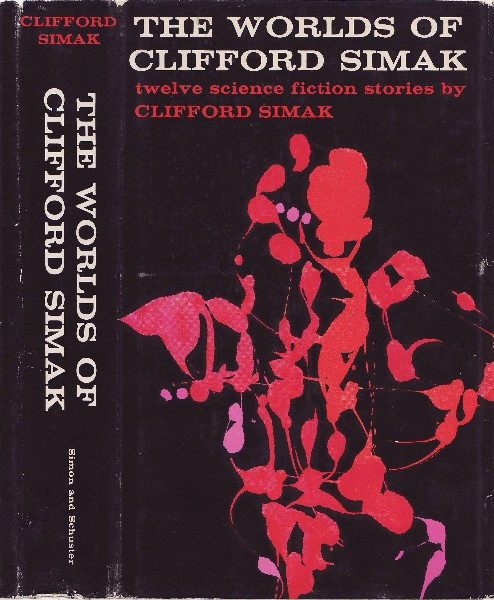
“Honorable Opponent“, a short story by Clifford D. Simak, Galaxy August 1956. I probably first read this in “The Third Galaxy Reader“, H. L. Gold editor, 1958 Doubleday/SFBC, many years ago. This is the story of how humans lost almost everything to the alien Fivers in a very poorly understood interstellar conflict. The Fivers don’t understand the concepts of a cease fire or armistice. However, at the post conflict conference, the humans find out the conflict was very different than they thought, more game, and not fatal to the humans or destructive to their ships with the Fivers “taker”. The Fivers want to play again, as the humans are the best competition they have found so far and want to teach them to compete better. There is one issue that would be unacceptable today, with the human General thinking that the Fivers nonfatal “taker” could be used to relocate uncooperative indigenous races. It’s not major Simak, but he does a wonderful job of communicating the confusion the human General and his team face in dealing with the Fivers. Other reprints include “The Worlds of Clifford Simak“, 1960 Simon & Schuster, a number of foreign language versions, and “Future Wars … and Other Punchlines“, Hank Davis editor, 2015 Baen. Rated 3.6/5, or “Very good”.

“Tomb Tapper“, a short story by James Blish, Astounding July 1956. A great story of a Civil Air Patrol wing and its search for a downed Soviet flying machine after an atomic bombing. They use sophisticated brain wave monitoring to tap the dead brains of enemies. The set men who use this setup to read dead brains are called “tomb tappers”. They find a crashed rocket; it’s not clear if it is Soviet or alien. After an arduous process, they determine that the pilot was a human eight year old girl, used due to size and weight tradeoffs. The set man is horrified to find this out and vows never to go “tomb tapping” again. Reprints include Blish’s 1959 Signet/New American Library collection “Galactic Cluster“, “Best Science Fiction Stories of James Blish“, 1965 Faber and Faber, “Dogs of War“, David Drake editor, 2002 Aspect/Warner Books, and “Works of Art: Selected Short Works of James Blish“, James Mann editor, 2008 NESFA Press. Rated 3.8/5, or “Great”.
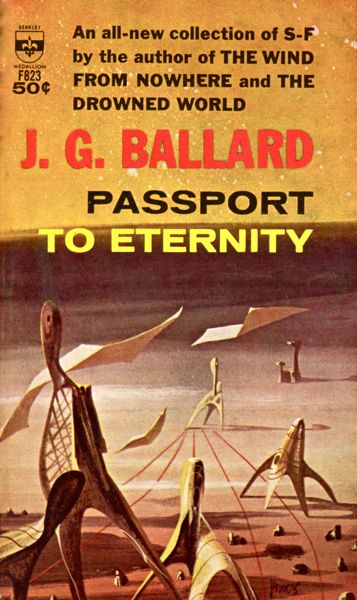
“Escapement“, a short story by J. G. Ballard, New Worlds December 1956. A very good story of a man beset by time loops when no one else is. It finally ends, and it’s his wife’s turn. The mechanism for this is vague, with some rather hand wavey mention of billowing gases. Published the same month as “Prima Belladonna”, his other first story in a professional publication. Reprints include the Ballard collection “Passport to Eternity“, 1963 Berkley Medallion, a number of foreign language reprints and other Ballard collections, and “The Complete Stories of J. G. Ballard“, 2009 W. W. Norton & Company. Rated 3.6/5, or “Very good”.

“Junior“, a short story by Robert Abernathy, Galaxy January 1956. A great story of an intelligent sea dweller whose life cycle starts floating but ends up fixed like a sea anemone. Offspring “Junior” Is disobedient and innovative, and does not want to stay in one place. Junior puts wheels on his foundation, and rolls away. I find the artist’s visualization unlikely but fun. A modest number of reprints, including “S-F: The Year’s Greatest Science-Fiction and Fantasy“, Judith Merril editor, 1956 Dell, and “Neglected Visions“, Martin H. Greenberg, Barry N. Malzberg, & Joseph D. Olander editors, 1979 Doubleday. Rated 3.8/5, or “Great”.

“Margin of Profit”, a novelette by Poul Anderson, Astounding September 1956. I suspect this is the first Nicholas Van Rijn story, in Poul Anderson’s Technic History. He is the owner of Solar Spice & Liquors. They and the rest of Polesotechnic League are capitalists through and through. Their ships on an important trading run are being stopped and the crews press-ganged and conditioned. The Spacer’s Lodge threatens a strike. Van Rijn leads a response which solves the problem. He is an interesting character, who uses guile to get his way and make a buck while expressing himself in a colorful way. This story is typical of the Nicholas Van Rijn stories. Reprints include the Ace Double F-139, “Un-Man and Other Novellas/The Makeshift Rocket“, Poul Anderson author, 1960 Ace Books, the Anderson collection “The Earth Book of Stormgate“, 1978 Berkley/Putnam, “The Seven Deadly Sins of Science Fiction“, Isaac Asimov, Martin H. Greenberg, & Charles G. Waugh editors, 1980 Fawcett Crest, and the Anderson collection “The Van Rijn Method“, 2008 Baen. Rated 3.6/5, or “Very good”.

“Fair”, a short story by “Keith Woodcott”, a John Brunner pseudonym, New Worlds Science Fiction #45 March 1956. An aging pilot, no longer able to work because his mother was naturalized, goes to the Fair. After an amazing trip through very challenging (purposefully so) moving sidewalks reminiscent although different from those found in Heinlein’s 1940 novella “The Roads Must Roll” and Asimov’s 1954 novel “The Caves of Steel“, he notices something very interesting about the VR feature and gets a job. Great character too. Reprints include the Brunner collection “No Future in It“, 1962 Gollancz, “SF: Authors’ Choice 4“, Harry Harrison editor, 1974 Putnam, and “The Best of John Brunner“, 1988 Del Rey/Ballantine. Rated 3.8/5, or “Great”.
A story from “The Great SF Stories # 18 (1956)“, Isaac Asimov & Martin H. Greenberg editors, 1988 DAW Books, not listed reviewed above.

“Rite of Passage“, a novelette by Henry Kuttner and C. L. Moore, F&SF May 1956. A great story of a future, after Great Wars and the breakdown of society. Monopolistic corporations and clans rule, and black and white magic rules. A Black President associated with black magic, Lloyd, abuses the system by stealing the soul of the White President (associated with white magic) who his ex-wife loves. In soul stealing, the victim and society all believe the victim will die in 10 days, and the victim does. In the meantime, the victim is treated as a nonperson, with some parallels to Damon Knight’s 1956 short story “The Country of the Kind“. Lloyd does this because he has seen the ancient microfilms and knows and believes that all of the magic is a result of society’s belief. He does not believe. One day he wakes up as a declared dead man. In 10 days he dies, finding out he does believe. There are not as many reprints as I expected for this story, other than “The Great SF Stories #18 (1956)“, reprints include the Kuttner/Moore collection “Detour to Otherness“, 2010 Haffner Press and two foreign language reprints. Rated 3.8/5, or “Great”.
There were stories from “Rediscovery: Science Fiction by Women Vol. 2 (1953-1957)“, Gideon Marcus editor, 2022 Journey Press, 2022 (see my review).

“The Piece Thing“, a short story by Carol Emshwiller, Science Fiction Quarterly May 1956. Reading a new Carol Emshwiller story, one I’ve never read before, is almost always a great pleasure. Told from the POV of a nameless alien, the being has drifted far from home while looking for Mother. The alien is radioactive and is found and captured by a uranium prospector. The greedy prospector wants nothing but money and alcohol, and is not interested in the telepathic, radioactive alien beyond money. Time goes on, the alien changes and eats the prospector, and we discover it is now a Mother, with a herd of little mobiles. The other reprint for this under-remembered work is “The Collected Stories of Carol Emshwiller Vol. 1“, 2011 Nonstop Press. Rated 3.9/5, or “Great”.

“Woman’s Work“, a short story by Garen Drussaï, F&SF August 1956. A great story of ultra competitive sales, with a dose of sexism. Other reprints include “Microcosmic Tales: 100 Wondrous Science Fiction Short-Short Stories“, Isaac Asimov, Martin H. Greenberg, & Joseph D. Olander editors, 1980 Taplinger, and a German reprint. Rated 3.8/5, or “Great”.
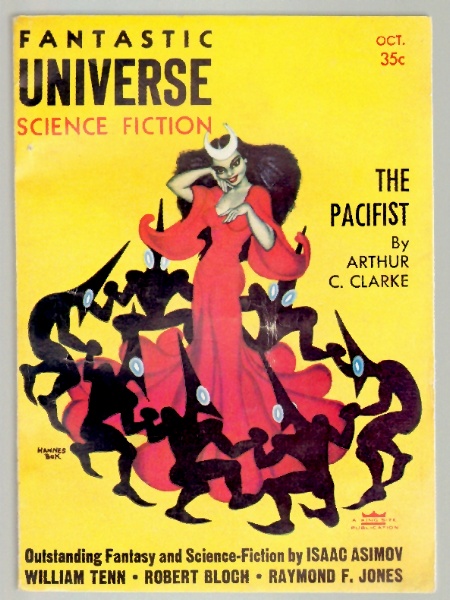
“Poor Little Saturday“, a short story by Madeleine L’Engle, Fantastic Universe October 1956. Written and published before “A Wrinkle in Time“, I did not know anything about short fiction by Madeline L’Engle. A great fantasy with a tinge of SF, of a young man with malaria in the South, and a witch and her perhaps apprentice. Things end badly. Given L’Engle’s popularity, there are more than a few reprints, including “Witches“, Isaac Asimov, Martin H. Greenberg, & Charles G. Waugh editors, 1984 Signet/New American Library and a number of other Martin H. Greenberg anthologies, “Mistresses of the Dark: 25 Macabre Tales by Master Storytellers“, Stefan Dziemianowicz, Denise Little, & Robert Weinberg editors, 1998 Barnes & Noble Books, and “Witches: Wicked, Wild & Wonderful“, Paula Guran editor, 2012 Prime Books. Rated 3.8/5, or “Great”.

“The Red Wagon“, a short story by Jane Roberts, F&SF December 1956. Definitely more fantasy than SF, the story of the reincarnated Phillip and his host the five year old Peter. Based upon past experiences, Phillip knows he must fight to retain memory and intellect. He keeps a diary while Peter is asleep, as one means of preserving himself. The diary shows his continued determination to survive in the five year old mind, with the last entry clearly that of a now six year old. It’s epistolary! Other reprints include “Ladies of Fantasy: Two Centuries of Sinister Stories by the Gentle Sex“, Gogo Lewis & Seon Manley Lothrop, 1975 Lee & Shepard and a French publication in “Fiction” (I do suspect the cover art is for “The Red Wagon”). Rated 3.7/5, or “Very good”.

“Moonshine“, a short story by Ruth M. Goldsmith, Atlantic Monthly May 1956. A very good story of savvy moonshiners and aliens, with a very deft humor. One of her only two stories. She had at least one mainstream novel published, and I wish she had written more speculative fiction. Other reprints include F&SF June 1957 and “Fiction” in French. Rated 3.7/5, or “Very good”.
From “The Best from Fantasy and Science Fiction, Sixth Series“, Anthony Boucher editor, 1957 Doubleday, there were a number of stories not already selected or read.

“The Asa Rule“, a short story by Jay Williams, F&SF June 1956. A great story of a very curious Earth man, a Martian woman, and a Martian pest called widgits. While I find the possibility of inter breeding to be farfetched, it did not ruin the story for me. There were two other reprints in French (Fiction #42 1957) and German (“20 Science Fiction-Stories“, Anthony Boucher editor, 1963 Heyne). Rated 3.8/5, or “Great”.
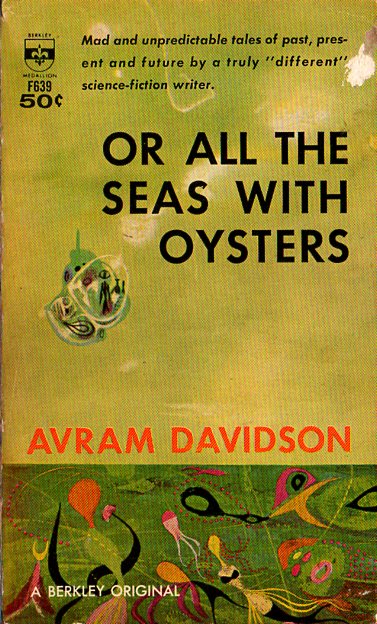
“King’s Evil“, a short story by Avram Davidson, F&SF October 1956. In the same issue of F&SF as “The Anything Box“. A “what?” of a story, so typical of Avram Davidson. A Mesmerist comes to London, and chance prevented him from perhaps curing King George in 1788. Not sure if this is really SF, but that is not really essential for Avram Davidson. Other reprints include the Davidson collection “Or All the Seas with Oysters“, 1962 Berkley Medallion, “Special Wonder: The Anthony Boucher Memorial Anthology of Fantasy and Science Fiction“, J. Francis McComas editor, 1970 Random House, “The Best of Avram Davidson“, 1979 Doubleday, and several foreign language reprints. Rated 3.7/5, or “Very good”.
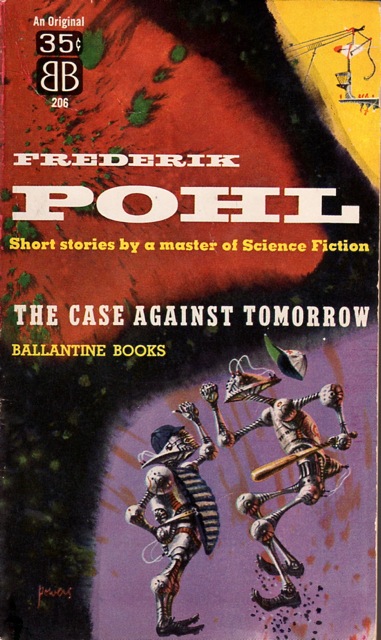
“The Census Takers“, a short story by Frederik Pohl, F&SF February 1956. It’s time for the annual census. As we read the story, we conclude it occurs in California or the West Coast of the USA. There is a very strict limit on population. An undocumented Over shows up, claiming to be from the center of the Earth. The Census Area manager does not believe it, and orders elimination. The area representative is found dead after reporting that the ambassador is not happy, feeling that the surface needs a redo, or what we would call a “reboot” today. The ambassador is not found. Geologic issues start to be threatening, including a tsunami, volcano, and problems with geysers at Yellowstone, all suggesting action by those from the center of the Earth. A great story, told by the very focused and efficient Census Area manager, who clearly is missing the bigger picture here. Other reprints include the Pohl collection “The Case Against Tomorrow“, 1957 Ballantine Books, “The Best of Frederik Pohl“, 1975 Nelson Doubleday/SFBC, “You and Science Fiction“, Bernard C. Hollister editor, 1976 National Textbook Co., “No Room for Man“, Ralph S. Clem, Martin H. Greenberg, & Joseph D. Olander editors, 1979 Rowman & Littlefield, and several foreign language reprints. Rated 3.8/5, or “Great”.
“Final Clearance“, a short story by Rachel Maddux, F&SF February 1956. A great story, sad and yet humorous, about a widow who lost her husband Tom recently. He turns up, corporeal but of uncertain status. It turns out there is paperwork for the the newly dead, and Tom can’t remember what county his wife’s mother was born in. The wife likes having him back, and decides to not tell him so the paperwork can never be finished. There are several reprints in Italian. Rated 3.8/5, or “Great”.
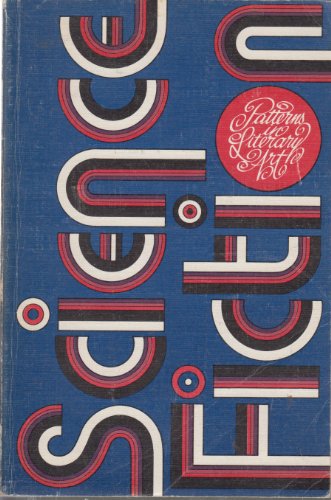
“The Silk and the Song“, a novelette by Charles L. Fontenay, F&SF July 1956. Humans have come to a world. They leave their ship and are conquered by the alien Hissar. Finally, wild humans break free and reclaim the ship, and figure out how to start a journey back to Earth. I was underwhelmed. For all that I was underwhelmed, there are a number of other reprints, including “Themes in Science Fiction: A Journey Into Wonder“, Leo P. Kelley editor, 1972 McGraw-Hill, “Histoires galactiques“, Jacques Goimard, Demètre Ioakimidis, & Gérard Klein editors, 1975 Le Livre de Poche, “Science Fiction A to Z: A Dictionary of the Great S.F. Themes“, Isaac Asimov, Martin H. Greenberg, & Charles G. Waugh editors, 1982 Houghton Mifflin, and “Here, There and Elsewhen, Volume 2: The Solar System and Beyond“, Charles L. Fontenay editor, 2001 Royal Fireworks Press. Rated 3.5/5, or “Good”.

“The Shoddy Lands“, a short story by C. S. Lewis, F&SF February 1956. An epistolary story, recounted as a record of what happened. A Don of Oxford has a visit by a former student and the student’s fiancée. For some unknown reason, the Don is transported to the Shoddy Lands, where almost everything and everyone is shoddy and unformed. He finds a view of the fiancée that is rather shocking to him, as if he is now seeing a shoddy and unpleasant reality most of us never see. This reminded me of the Shadows found in Roger Zelazny’s Amber series and the reality behind them. I was very impressed with this story, not at all what I was expecting from C. S. Lewis. Other reprints include the Lewis collection “Of Other Worlds: Essays and Stories“, 1966 Geoffrey Bles, “The Light Fantastic: Science Fiction Classics from the Mainstream“, Harry Harrison editor, 1971 Charles Scribner’s Sons, “The Late Great Future“, John Dillon & Gregory Fitz Gerald editors, 1976 Fawcett Crest, and “The Flying Sorcerers“, Peter Haining editor, 1997 Souvenir Press. Rated 3.8/5, or “Great”.
“The Last Present“, a short story by Will Stanton, F&SF August 1956. Same issue of F&SF as “The Light is Risen”. A very interesting story of a boy who hiked out of town to his cave on his birthday. He came back that afternoon, and his world was very different, perhaps after an invasion? The nature of the difference is not very clear, and perhaps that helps make this story interesting to me. Other reprints limited to a German and Italian publication. Rated 3.8/5, or “Great”.
“No Man Pursueth“, a novelette by Ward Moore, F&SF April 1956. This feels more like a morality play than a story to me. An actress, in a world where people disappear and sometimes return. It happens to her several times, and she realizes she has not been a good person. She is no longer worried about disappearing. Other reprints include one in French and one in Italian. Rated 3.5/5, or “Good”.
“I Don’t Mind“, a short story by Ron Smith, F&SF October 1956. A one page short short, perhaps of two people left in New York. This needed a bit more information, even only a few more words, for this to get to “Good” or “Very good” for me. The only other reprint is in German, in “20 Science Fiction-Stories“, Anthony Boucher editor, 1963 Heyne. Rated 3/5, or “Okay”.
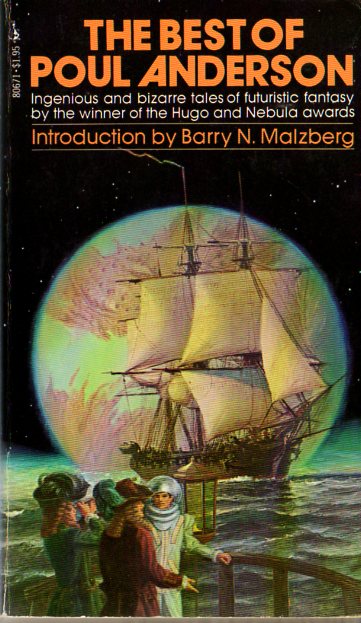
“The Barbarian“, a short story by Poul Anderson, F&SF May 1956. A Conan the Barbarian parody, told from the perspective of a civil servant of a decadent Eastern power. Definitely a fantasy and not SF. Other reprints include “The Best of Poul Anderson“, 1976 Pocket Books (I find this a surprising choice), “Shaggy B.E.M. Stories“, Mike Resnick editor, 1988 Nolacon Press, and “A Quest-Lover’s Treasury of the Fantastic“, Margaret Weis editor, 2002 Aspect/Warner Books. Rated 3.3/5, or “Good”.
“Icarus Montgolfier Wright“, a short story by Ray Bradbury, F&SF May 1956. A rocket pilot dreams of Icarus, and Montgolfier, and Wright. Not really my thing. Other reprints include many Bradbury collections including “A Medicine for Melancholy“, 1959 Doubleday, and “S Is for Space“, 1966 Doubleday, and “20 Science Fiction-Stories“, Anthony Boucher editor, 1963 Heyne, Rated 3.3/5, or “Good”.
From “The Best Science-Fiction Stories and Novels: 1956“, T. E. Dikty editor, 1956 Frederick Fell, there were these added 1956 stories (these anthologies were not solely year specific).

“The Man Who Always Knew“, a short story by Algis Budrys, Astounding April 1956. A great story of a man with one talent, which he calls “secondhand luck”. He is known as a genius inventor, but he has the uncanny talent of knowing people will come up with something unprecedented and being there. This all comes out as he talks to a bartender, who has just accidentally invented a new drink. Other reprints include “Tomorrow and Tomorrow“, Damon Knight editor, 1973 Simon & Schuster, “101 Science Fiction Stories“, Martin H. Greenberg, Charles G. Waugh, & Jenny-Lynn Waugh, 1986 Avenel Books, and “Tales from the Spaceport Bar“, Darrell Schweitzer & George H. Scithers editors, 1987 Avon (this is probably where I read this story first). Rated 3.8/5, or “Great”.
Swenson, Dispatcher“, a novelette by R. DeWitt Miller, Galaxy April 1956. A great, entertaining story of a drunken, manipulative and almost maniacal interplanetary dispatcher at a scuffling, second tier freight company, with an odd theory about eggs. Other reprints include “Lost Stars 2“, Jean Marie Stine editor, 2004 Renaissance E Books, and one French reprint. Rated 3.8/5, or “Great”.

From “The Third Galaxy Reader“, H. L. Gold editor, 1958 Doubleday/SFBC. It’s worth noting that the Galaxy Readers were not year specific, unlike the Best from Fantasy & Science Fiction, so this is a subset of the contents.

“Protection“, a short story by Robert Sheckley, Galaxy 1956. A very good story of a human who accepts protection from a derg. There are benefits, but it does not end well. Other reprints include the Sheckley collection “Pilgrimage to Earth“, 1957 Bantam Books, “Laughing Space“, Isaac Asimov & J. O. Jeppson editors, 1982 Robson Books, and “The Collected Short Fiction of Robert Sheckley“, 1991 Pulphouse Publishing. Rated 3.7/5, or “Very good”.

“Dead Ringer“, a short story by Lester del Rey, Galaxy November 1956. A very good story of a WW2 veteran who believes there are zombies or aliens who survive death, and who keep themselves hidden. He is trying to expose all of this so people will know. He finally finds himself captured and facing possible shock therapy. He cuts his own throat, and discovers he is one of them. Other reprints include the del Rey collections “Mortals and Monsters“, 1965 Ballantine Books, and “Robots and Magic“, 2010 NESFA Press Rated 3.7/5, or “Very good”.
Similarly, from “The Fourth Galaxy Reader“, H. L. Gold editor, 1959 Doubleday, here are the 1956 stories not selected elsewhere.
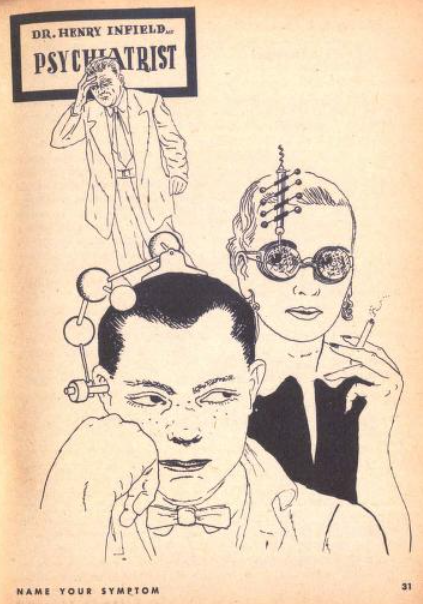
“Name Your Symptom“, a short story by Jim Harmon, Galaxy May 1956. I think I have read one other story by Jim Harmon, an author I know very little about. A very good and interesting story of a future world where many people have some kind of mechanical Cure to a symptom or phobia. A psychiatrist has a Cure for a fear of being struck by lightning. He is recruited and then threatened by a group of Cured who feel everyone should have one. He dies after being struck by lightning. This is an interesting idea, but the story execution needed to be better. Only reprinted in the “Fourth Galaxy Reader” until “Harmon’s Galaxy“, 2010 Cosmos Books/Wildside Press was published. Rated 3.6/5, or “Very good”.

“Man of Distinction“, a short story by Michael Shaara, Galaxy October 1956. Reprinted in the “Fourth Galaxy Reader” and then in “Wild Inventions”, Isaac Asimov, Martin H. Greenberg, & Charles G. Waugh editors, 1982 Raintree Publishers. Yet another time scanner story. A man conceives and creates an immensely popular company to trace fathers back, allowing people to find ancestors of distinction. As he ages, he has his staff search his ancestry. He never finds any of his ancestors to be interesting or of distinction, all the way back to our proto-human ancestors. Rated 3.8/5, or “Great”.
From “The World That Couldn’t Be and 8 Other Novelets from Galaxy“, H. L. Gold editor, 1959 Doubleday.
“Mezzerow Loves Company“, a novelette by F. L. Wallace, Galaxy June 1956. An entertaining and somewhat humorous story of a colonist and his grown son traveling to Earth to get the name of his planet changed. His father discovered the planet and submitted paperwork to name it “Mezzerow” after himself; the Earth bureaucrats messed up and named it “Messy Row”, which makes it less attractive to colonists. He struggles with Earth and it’s people, but is successful. He encounters marriage gangs while on Earth, which may impact the future. The only reprint is in “The Eleventh Golden Age of Science Fiction Megapack“, 2014 Wildside Press. Rated 3.7/5, or “Very good”.

From various Groff Conklin anthologies:
“The Claustrophile“, a novelette by Theodore Sturgeon, Galaxy August 1956, reprinted in Conklin’s “4 for the Future“, 1959 Pyramid Books. This is a superlative story of a man with different cognition and a loud Spaceman-in-training brother. This is not up with the very top Sturgeon, but that is a very high level, and this is a great story. It’s definitely an “Earth as an abandoned colony” variant, but the writing and execution are outstanding and the explanation of the protagonist and his recruitment to serve in space is very well done. This is one of my 1956 “Hidden Gems”. Other reprints include several Sturgeon collections and six foreign language reprints. Rated 4.1/5, or “Superlative”.


“Technological Retreat“, a short story by G. C. Edmondson, F&SF May 1956, reprinted in Conklin’s “13 Great Stories of Science Fiction“, 1960 Fawcett Gold Medal. A very good story of aliens and a business man who thinks he has an exclusive deal, a metal plasticizer, and the end of civilization. Humorous, but dire. Other reprints include two foreign language appearances. Rated 3.6/5, or “Very good”.

“Won’t You Walk?“, a novelette by Theodore Sturgeon, Astounding January 1956, first reprinted in Conklin’s “Dimension 4“, 1964 Pyramid Books. When I read speculative fiction, I have conflicting ideas about the title. I don’t want the title to give away what the story is about, but I do like to be able to figure out how the title relates to the story. I don’t see much of a connection between this story and the title. A man is very dissatisfied with his life. No one listens to him or treats him seriously. Reaching the breaking point, he walks out of his house one night. He finds himself in a nice neighborhood, where he tries to steal a sports car to kill himself in. Instead, he is captured by the homeowner, who uses the car as bait. Through a somewhat complex process of analyzing his speaking voice, the homeowner installs a harness with feedback to change the man’s voice resonance. People listen to him now. He goes back to the homeowner, as he owes him money. At the end, he finds out the harness was not real and he was duped into feeling and speaking in a more confident manner. I’m willing to accept this as SF, but it’s just not that good for Sturgeon. A disappointment. Other reprints include the Sturgeon collection “Visions and Venturers“, 1978 Dell, “Writers’ Choice, Volume II“, Stanley Schmidt editor, 1984 Davis Publications, and one German reprint. Rated 3.5/5, or “Good”.
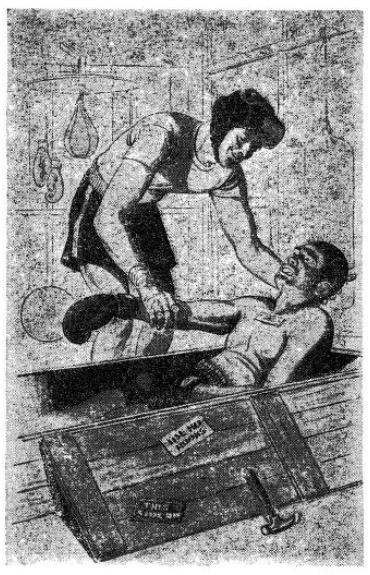
“Kid Anderson“, a short story by R. S. Richardson, Space Science Fiction Magazine Spring 1957, reprinted only in Conklin’s “Great Science Fiction by Scientists“, 1962 Collier Books. I like this story of a boxer and his new manager, and the boxing practice android, Andy. Unfortunately, the ending loses me. It’s likely that this is not a 1956 story also, as the date may be an error in ISFDB. Rated 3.3/5, or “Good”.

“Emergency Operation“, a Ruum short story by Arthur Porges, F&SF May 1956, reprinted in Conklin & Fabrican’ts “Great Science Fiction About Doctors“, 1963 Collier Books. A fun story of a miniature alien surgeon, traveling into a human’s circulatory system to remove a minute particle of plutonium. I don’t see the connection to the Ruum series as noted on ISFDB, but I could be ignorant or missing something. This came out very near to the time of Richard Matheson’s “The Shrinking Man” novel came out, but it’s not clear who was first or if there is any connection. It might just be a coincidence. Also reprinted in the Porges collection “The Ruum and Other Science Fiction Stories“, 2010 Richard Simms Publications, and one French reprint. Rated 3.6/5, or “Very good”.

“What to Do Until the Analyst Comes” (AKA “Everybody’s Happy But Me!”), a short story by Frederik Pohl, from the Pohl collection “Alternating Currents“, 1956 Ballantine Books, and reprinted in Conklin’s “17 X Infinity“, 1963 Dell. For me, this story of a new, “not habit forming drug” that is sold to replace cigarettes is a Hidden Gem. Pohl has a definite interest in stories about behavior modification and advertising, and this is a great one that is new to me. “Cheery-Gum” indeed! Other reprints include “Speculations“, Thomas E. Sanders editor, 1973 Glencoe Press, and “PsiFi: Psychological Theories and Science Fictions“, Michele Benjamin & Jim Ridgway editors, 1987 The British Psychological Society. Rated 3.9/5, or “Great”.

“Human Man’s Burden“, a short story by Robert Sheckley, Galaxy September 1956, reprinted in Conklin’s “12 Great Classics of Science Fiction“, 1963 Gold Medal Books. A light yet very well executed story of frontier life on a distant asteroid, a loyal robot foreman, a farmer, and his Ultra Deluxe Luxury Model (mail order) Bride. After ups and downs, they find love and the robots are happy. Other reprints include Sheckley collection “Pilgrimage to Earth“, 1957 Bantam Books, “Love 3000“, Martin H. Greenberg & Charles Waugh editors, 1980 Elsevier/Nelson Books, “The Collected Short Fiction of Robert Sheckley“, 1991 Pulphouse Publishing, and five foreign language publications. Rated 3.7/5, or “Very good”.

“The Live Coward“, a Wing Alak short story by Poul Anderson, Astounding June 1956, and reprinted in Conklin’s “Another Part of the Galaxy“, 1966 Fawcett Gold Medal. Per ISFDB, this is the last of three Wing Alak stories. I suspect I have read all of these before, but remember nothing. The Patrol has an iron bound policy of not killing anyone, due to the past blood thirsty practices of humans. Wing Alak of the Patrol must retrieve a homicidal fugitive from a rather medieval world who is under the protection of the king. Real trickery is needed. Entertaining but no more. I can see why there were only three Wing Alak stories. Other reprints include the Ace Double F-139, “Un-Man and Other Novellas/The Makeshift Rocket“, Poul Anderson author, 1960 Ace Books, “Call Me Joe (The Collected Short Works of Poul Anderson #1)“, 2009 NESFA Press”, and a German reprint. Rated 3.7/5, or “Very good”.

“On Camera“, a short story by John Novotny, F&SF April 1956, and reprinted only in Conklin’s “Science Fiction Oddities“, 1966 Berkley Medallion. A great story of an angry man who accidentally gives himself the ability to show up on TV after trying to fix it. He shows up on CBS when he is too angry. He is conscripted by Civil Defense. I don’t think I have seen stories by Novotny before. Rated 3.8/5, or “Great”.
From two Brian W. Aldiss anthologies:
“Early Model“, a short story by Robert Sheckley, Galaxy August 1956, and reprinted in the Aldiss and Harry Harrison anthology “Decade: The 1950s“, 1976 Macmillan UK. An entertaining story of an interstellar explorer trying out a prototype protection outfit that almost kills him. Other reprints include the Sheckley collection “Pilgrimage to Earth“, 1957 Bantam Books, “Body Armor: 2000“, Martin H. Greenberg, Joe Haldeman, & Charles G. Waugh editors, 1986 Ace Science Fiction Books, “The Collected Short Fiction of Robert Sheckley“, 1991 Pulphouse Publishing, “The Masque of Mañana” (the major short fiction of Robert Sheckley), 2005 NESFA Press, and “Worst Contact“, Hank Davis editor, 2016 Baen. Rated 3.6/5, or “Very good”.


“You Can’t Have Them All“, a short story by Charles Beaumont, Playboy August 1956, and reprinted in the Aldiss anthology “Best Fantasy Stories“, 1962 Faber and Faber. A fun but very, very, very dated story of a man obsessed with “having” all of the women who are his type. He comes close, but is thwarted. I think this story could be written today, but it would be very, very different. Other reprints include the Beaumont collections “Yonder: Stories of Fantasy and Science Fiction“, 1958 Bantam Books, “Best of Beaumont“, 1982 Bantam Books, and “Perchance to Dream: Selected Stories“, 2015 Penguin Books (US). Rated 3.7/5, or “Very good”.
From various other anthologies:
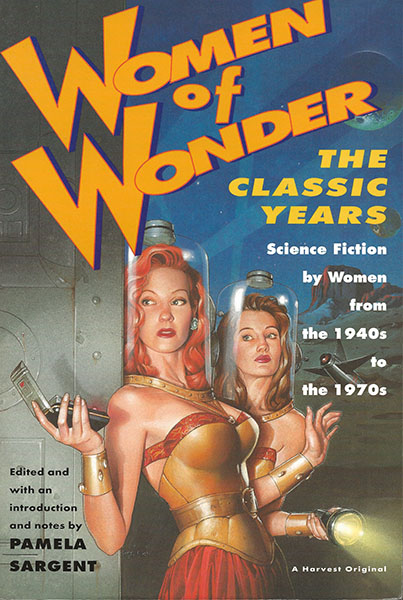
“Death Between the Stars“, a short story by Marion Zimmer Bradley, Fantastic Universe 1956, and reprinted in “Women of Wonder, the Classic Years: Science Fiction by Women from the 1940s to the 1970s“, Pamela Sargent editor, 1995 Harvest/Harcourt. This is a great story of a woman who must journey across the galaxy to return to Earth before war breaks out. The only ship available is a cargo ship, with only one passenger room. A nonhuman has reserved it. She reluctantly agrees to share the room with the nonhuman, who is a telepath. The crew’s disgust and hostility causes the death of the nonhuman on board. Due to her sympathy and compassion even in the face of her own revulsion, the dying alien’s mind merges with hers. This ends up being good for her and perhaps others. This might be the best MZB story I have read. Other reprints include the Marion Zimmer Bradley Ace Double F-273 “The Dark Intruder & Other Stories/ Falcons of Narabedla“, 1964 Ace Books, “The Best of Marion Zimmer Bradley“, 1985 Academy Chicago, “Decades of Science Fiction“, Applewhite Minyard editor, 1997 NTC Publishing Group, and several foreign language reprints. Rated 3.9/5, or “Great”.
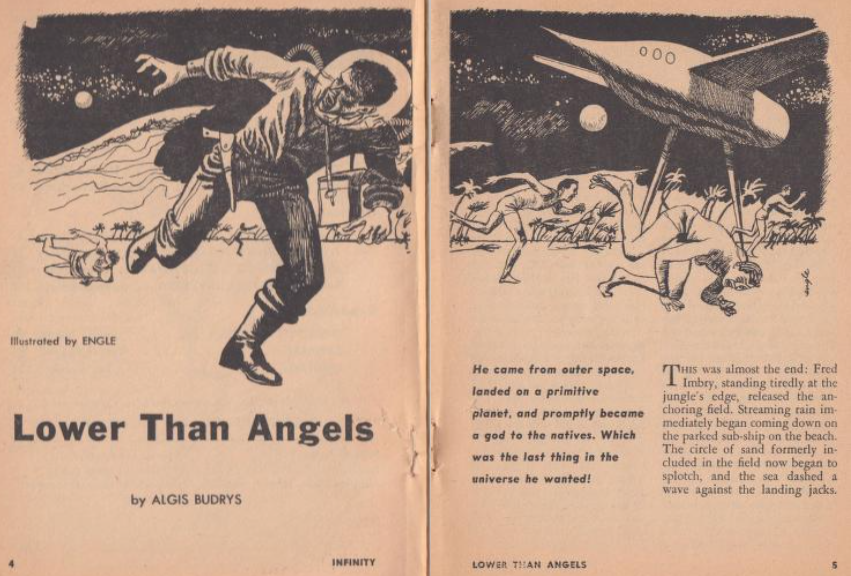
“Lower Than Angels“, a novelette by Algis Budrys, Infinity Science Fiction October 1956, and reprinted in Robert Silverberg’s “Earthmen and Strangers“, 1966 Duell, Sloan and Pearce. This is not a bad story of first contact by a Corporation agent, where the natives think him a god and he resolves to show them he is not. However, it just dragged for me, so I gave up. Other reprints include the Budrys collection “Budrys’ Inferno“, 1963 Berkley Medallion, “Universe Ahead: Stories of the Future“, Sylvia Engdahl & Rick Roberson editors, 1975 Atheneum, and two foreign language reprints. Rated 2/5, or “Did not finish”.
Finally, there were seven other stories I wanted to read.

“And the Light is Risen“, a novella by Walter M. Miller, Jr., F&SF August 1956. I had enjoyed the original novelette of “A Canticle for Leibowitz” as published in F&SF in 1955, so I felt reading this original version of the second part of that would be worthwhile. Apparently, “Fiat Lux”, the second novella forming “A Canticle for Leibowitz”, was adapted from this. It’s never been reprinted in original form. I don’t think I have ever read this version before, only ” Fiat Lux” from the “novel”. Amid the whirling plotting of a warlord, the leading natural philosophy of 1200 years after the fall of civilization travels to the Abbey of Saint Leibowitz to research ancient knowledge. The abbot is quite concerned about all of this, and consults with the hermit who might be the Wandering Jew. The abbot is a gracious host to the scholar, although there are strains in the relationship. The scholar gains that knowledge, but is clear to the abbot he is not taking any responsibility for the use of that knowledge. All in all, one hell of a story. I don’t feel the need to reread “Fiat Lux” to compare. I can understand why this has never been reprinted given the length and 1959 publication of the revised version in “A Canticle for Leibowitz”, but I regret it. This is much better than many other 1956 stories that were reprinted. I’m calling this a “Hidden Gem” considering it’s never been reprinted in this form. Rated 4/5,or “Great”.

“Women’s Work“, a short story by Murray Leinster, Science Fiction Stories November 1956. I was just curious, as the only other 1956 Leinster story I have is “Exploration Team“, about which I have very mixed feelings. A pair of women, a Sergeant and a Corporal, staff a very remote observation base on a rotating 3 month basins during a war with a lot of missiles with atomic warheads. They assign women to do this because it is claimed they are better at boring detail work. A man shows up, claiming to be a downed flier. Neither of the women has seen a man for months, and they, especially the young Corporal, are shown as really wanting his attention. Is he a downed flier, a deserter, or a spy? This is interesting but not that good. It’s never been reprinted, and I can see why. I do think showing the women as really wanting his attention detracted from the story. Rated 3.5/5, or “Good”.
“After Some Tomorrow“, Mack Reynolds, If June 1956. A Jim Harris suggestion after he was less than impressed with “Compounded Interest” by Mack Reynolds which was one of our 22 selected stories from 1956. This is a better story, of clan based life after a major (atomic?) war. Very, very few fertile men are left as “husbands”, so they are kept safe for breeding and child care while women fight. A husband for a clan is intelligent and almost convinces the clan that they need to change strategies, but fails. Things do not look good for their long term survival. This has very few reprints, with “Mack Reynolds, Part One“, 2011 Armchair Fiction, and a French reprint. Rated 3.8/5, or “Great”.


“The Chosen People“, a novelette by Robert Randall (Randall Garrett and Robert Silverberg), Astounding June 1956. I reread this because it’s the first Nidorian “Shrouded Planet” story, and because it’s in the same issue of Astounding as several other stories I read here. I find the Robert Randall (Randall Garrett and Robert Silverberg) team and the Nidorian stories very interesting. They are not brilliant, but well written. Earthmen have come to Nidor, a planet hidden among clouds. The Earthmen profess to accept the faith practiced. A student at the advanced school they run figures out what to do about a hugl outbreak, by showing the Elders how their solution conforms to Scripture. Both Silverberg and Garrett went on to much greater things. The only reprint in this form is in “Analog: Writers’ Choice“, Stanley Schmidt editor, 19873 Davis Publications. A version of it is included in the Randall/Silverberg fix-up novel “The Shrouded Planet“, 1959 Gnome Press; I have not checked to see if it is the same version or not. Rated 3.7/5, or “Very good”.

“The Executioner“, a novelette by Algis Budrys, Astounding January 1956. Read because it’s in the same issue of Astounding as “Won’t You Walk…” in, because I like Algis Budrys, and because it had Frank Kelly Freas illustrations. I assume I have read this, as it’s the lead story in an issue of Astounding I own, but I remember nothing. In a future, post-something North America with states that may now be countries, justice is meted out by Justices with guns, similar to trial by ordeal. Some of the accused do survive, but most die. An aging, honest, but not very sharp Justice executes a young woman for inappropriate behavior. We find out there was a riot afterward, and that there have been rumblings of societal discontent. This trial was set up to flush rebels into the open. The aging, honest justice goes to one last trial, and kills the Head Justice and his probable successor, feeling that they would survive if their cause was just. This is another “Hidden Gem” for me, although it has a respectable number of reprints. Reprints include the Budrys collection “The Unexpected Dimension“, 1960 Ballantine Books, “Spectrum“, Kingsley Amis & Robert Conquest editors, 1961 Gollancz, “Dark Sins, Dark Dreams: Crime in Science Fiction“, Barry N. Malzberg & Bill Pronzini editors, 1978 Doubleday, and the Budrys collection “Entertainment“, 1997 NESFA Press. Rated 3.9/5, or “Great”.
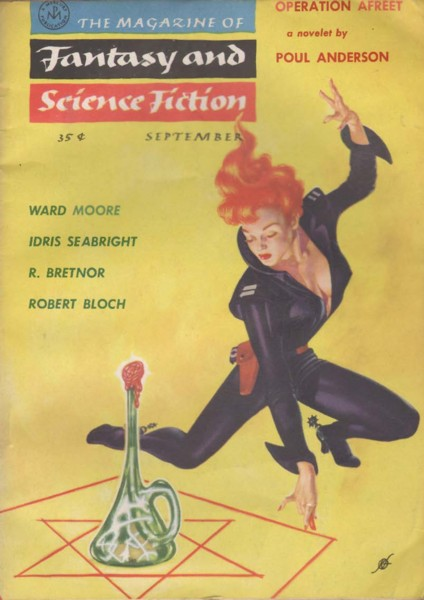
“Operation Afreet“, a novelette by Poul Anderson, F&SF September 1956. I think Piet Nel suggested reading this, and I know I had read it in the 1971 Anderson fix-up novel/collection, “Operation Chaos“. I love Poul Anderson’s putting magic on a scientific basis here by the elimination of cold iron as an issue. A werewolf and a witch are key to defeating the hereetical Caliphate invaders. While the werewolf holds off the invaders, the witch uses her magic to pen the afreet and modern psychology to convince the afreet that the only safe place was back in the bottle. Reprints include “Masterpieces of Fantasy and Enchantment“, Kathryn Cramer & David G. Hartwell editors, 1988 Nelson Doubleday/SFBC, “The Oxford Book of Fantasy Stories“, Tom Shippey editor, 1994 Oxford University Press, “Monster Brigade 3000“, Martin H. Greenberg & Charles Waugh editors, 1996 Ace Books, “The Fantasy Hall of Fame“, Robert Silverberg editor, 1998 HarperPrism, and “The Queen of Air and Darkness: The Collected Short Works of Poul Anderson #2“, Rick Katze editor, 2009 NESFA Press. Rated 3.8/5, or “Great”.

“Sour Note on Palyata“, a novelette by James H. Schmitz, Astounding November 1956. I am a huge James H. Schmitz fan. I was very disappointed in “The Ties of Earth” (Galaxy November 1955 and January 1956) and wanted to find a better 1956 Schmitz story. I think this is the second story in Schmitz’s Hub universe, and the first one featuring Pilch and the Psychology Service. Daffold, Assistant Secretary to the Outposts Department, has reluctantly called in the Psychology Service to deal with a world of humanoids they do not understand but who could present an existential threat to humans. They investigate and discover that the Palyatans have developed a very intelligent subconscious due to the presence of a psionic predator quite a long time ago. These intelligences are happy to meet humans once the Psychology Service figures out how to connect with them. As part of all of this Daffold is primed to join the Psychology aservice. This story is not great Schmitz, but it’s way better than “The Ties of Earth”. Modest reprints include “The Best of James H. Schmitz“, 1991 NESFA Press, and the Schmitz collection “Trigger & Friends“, 2001 Baen. Rated 3.7/5, or “Very good”.

Leave a comment